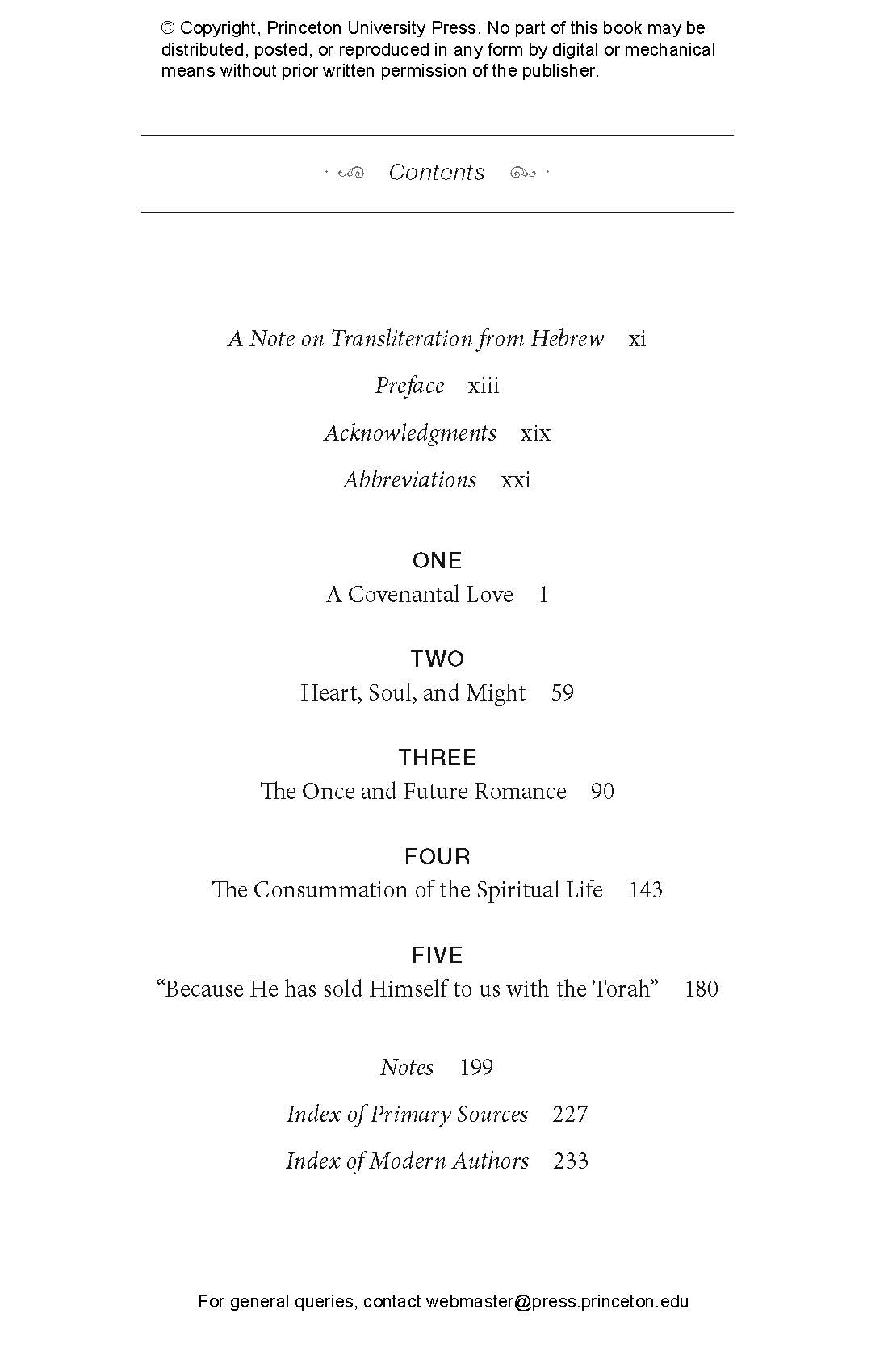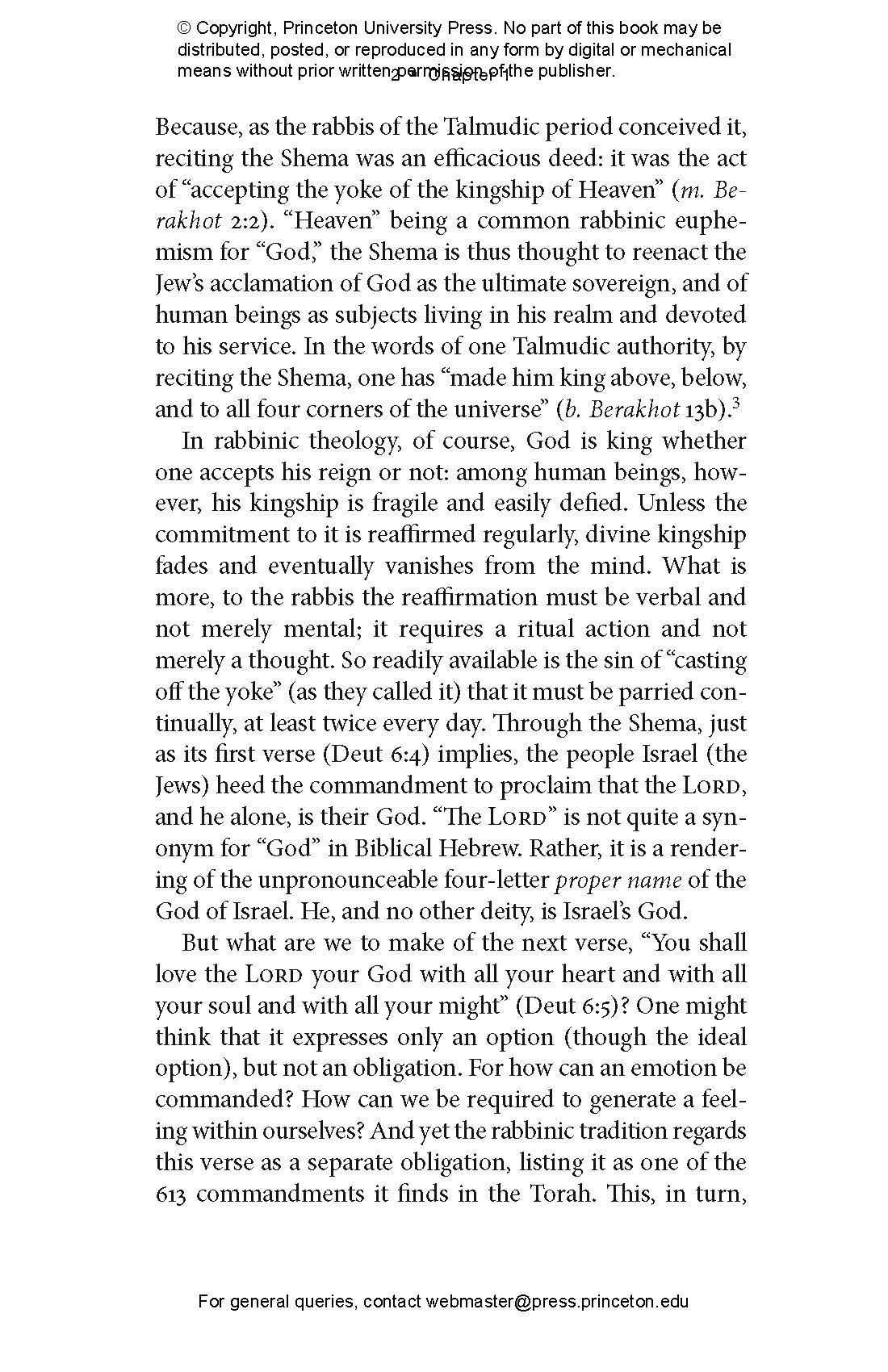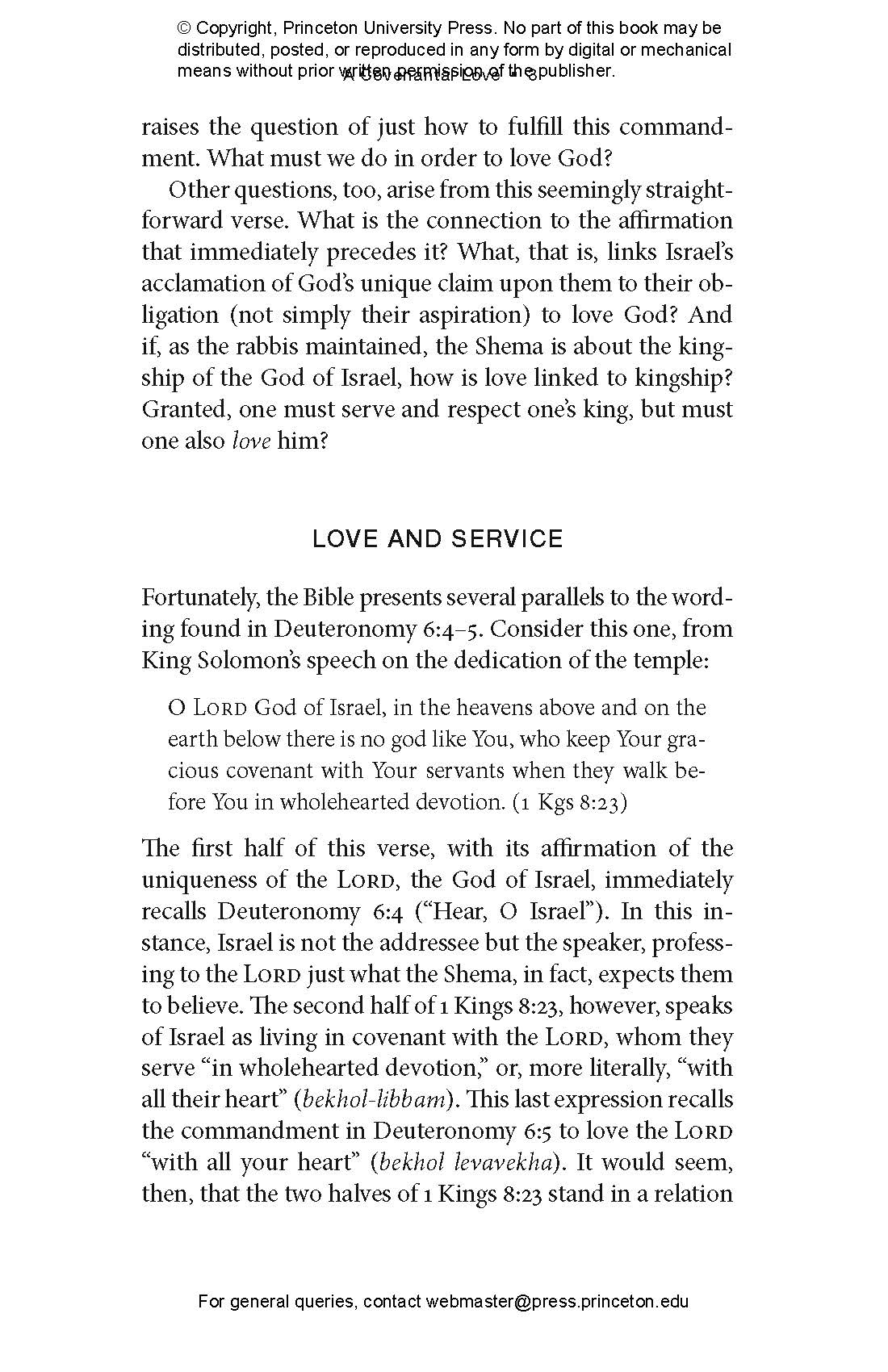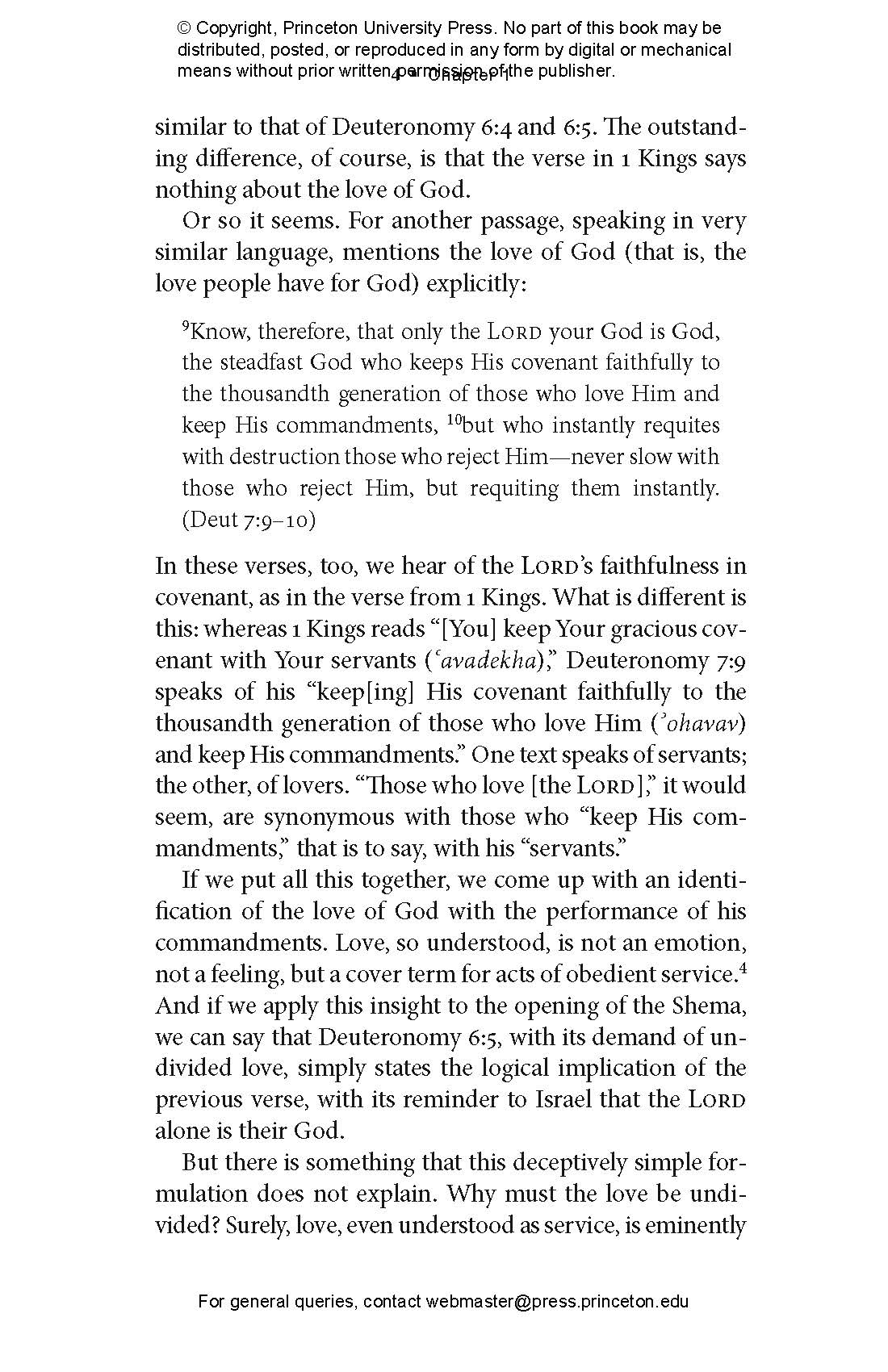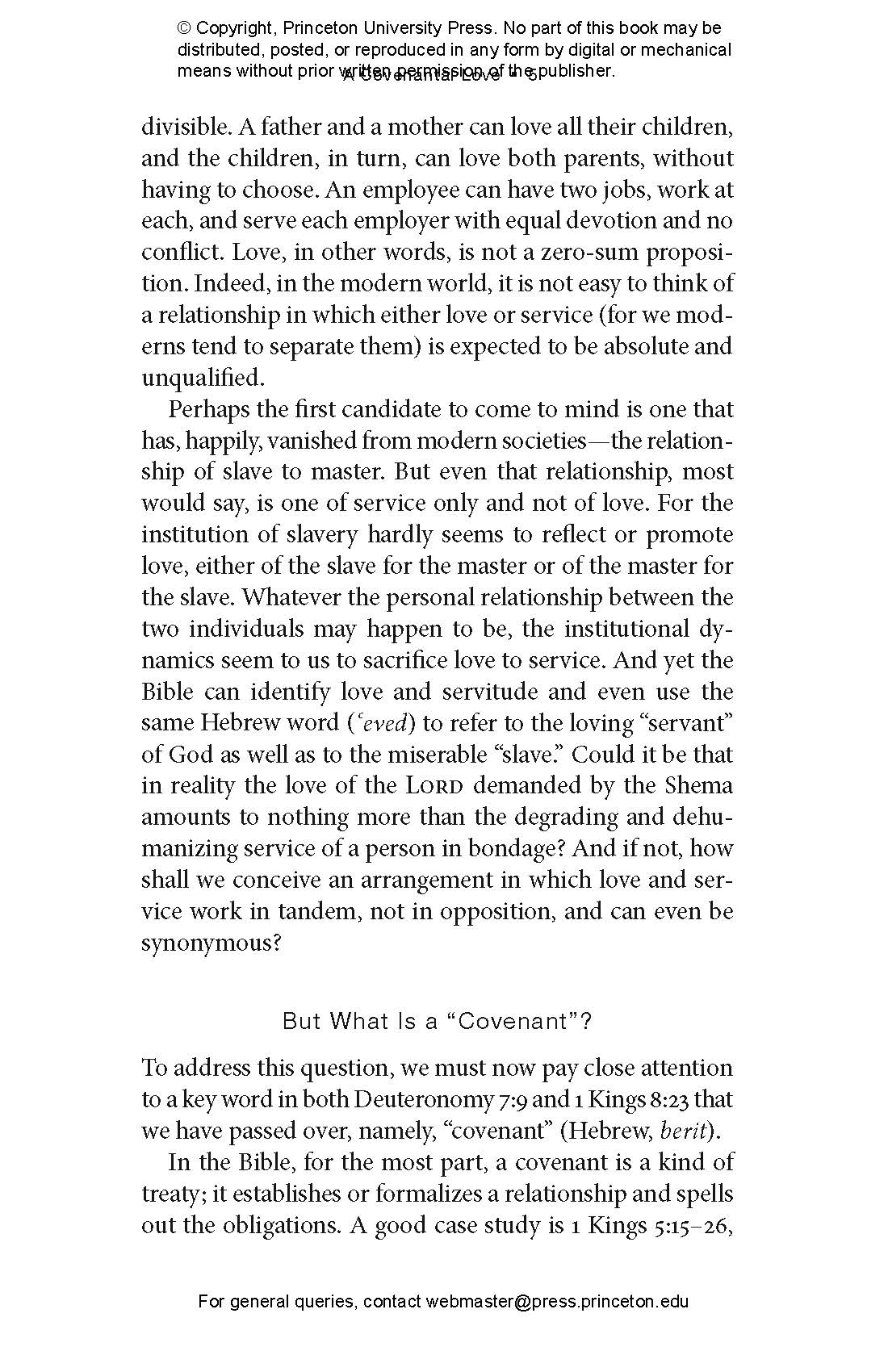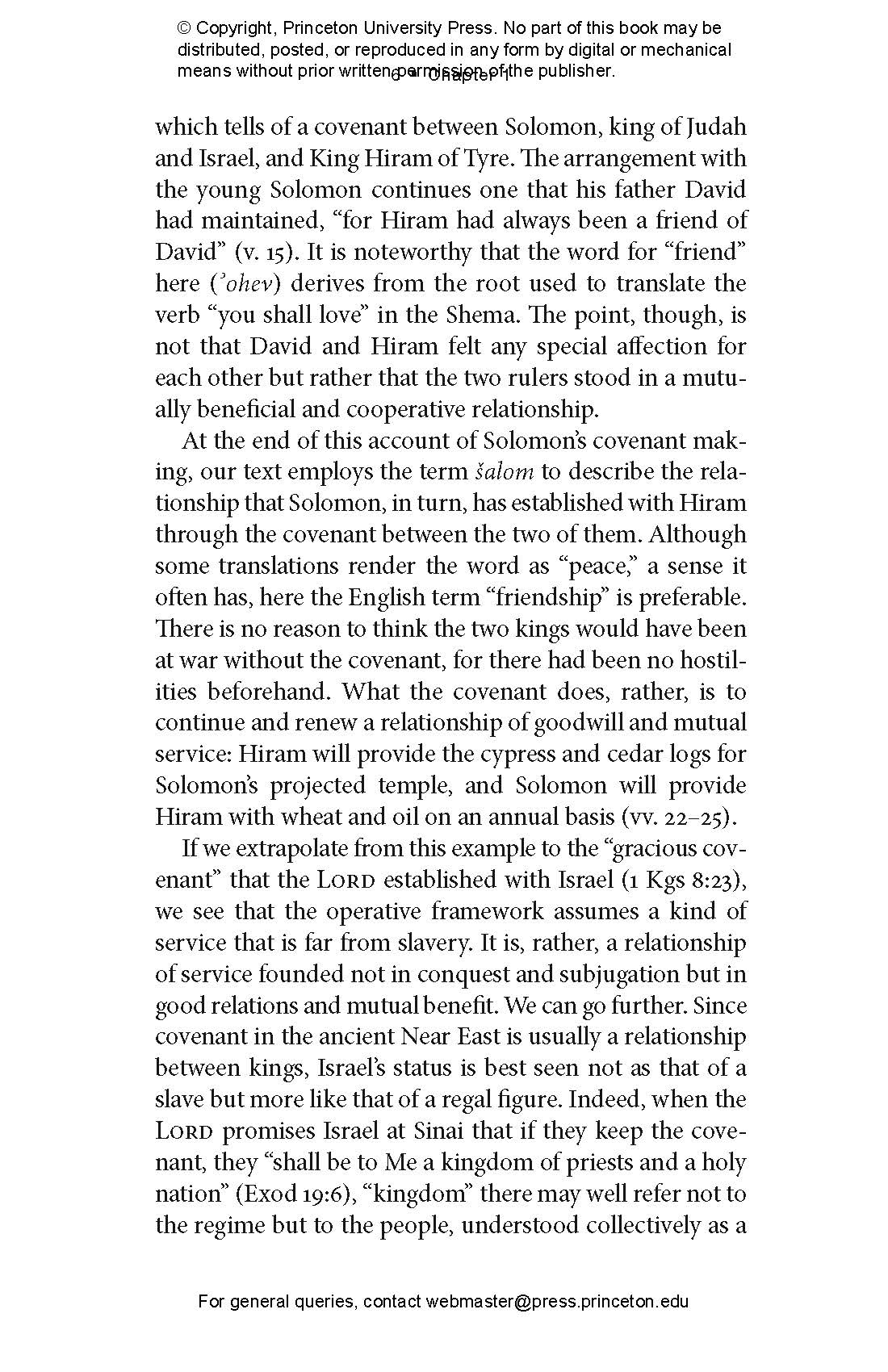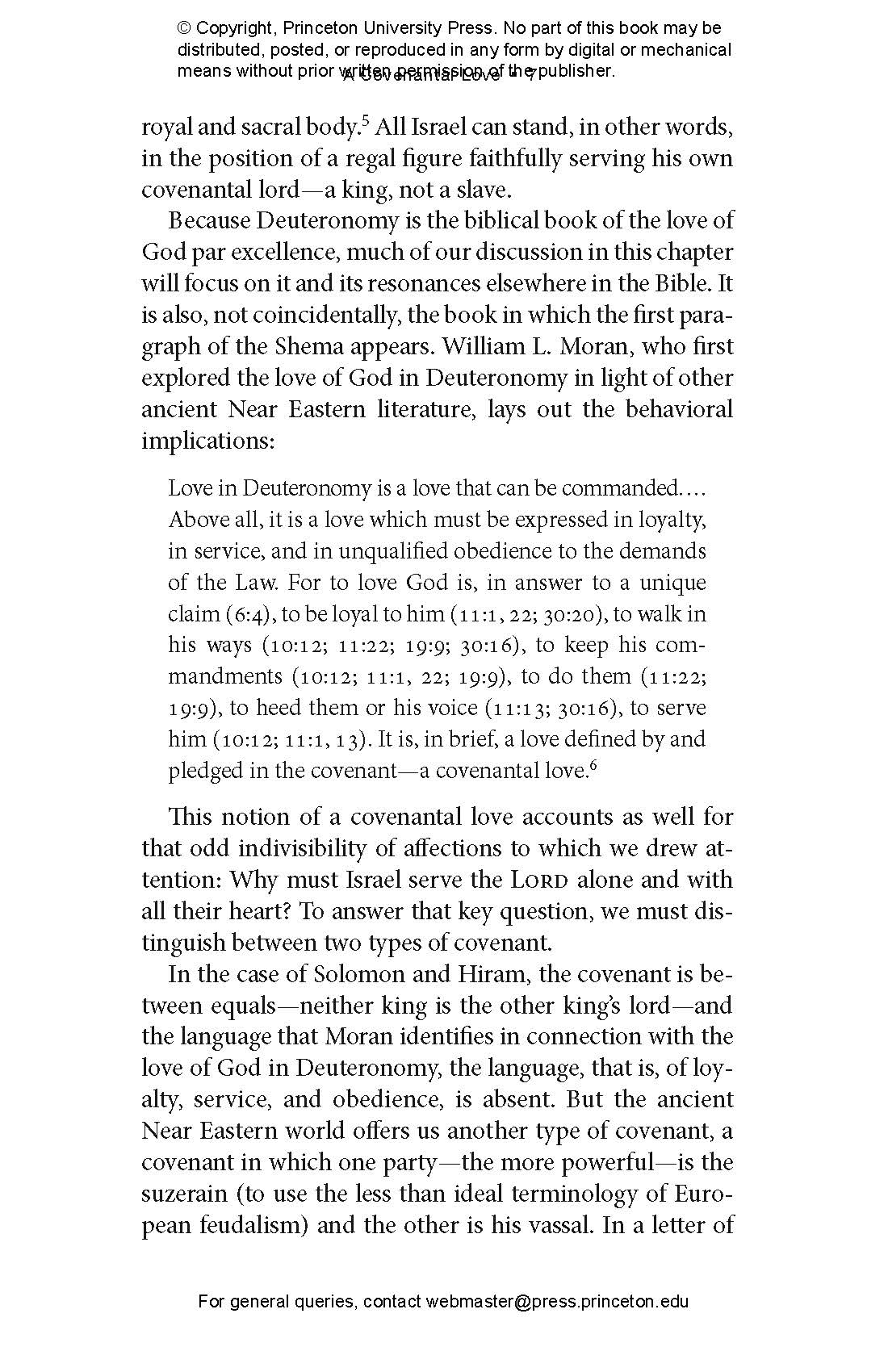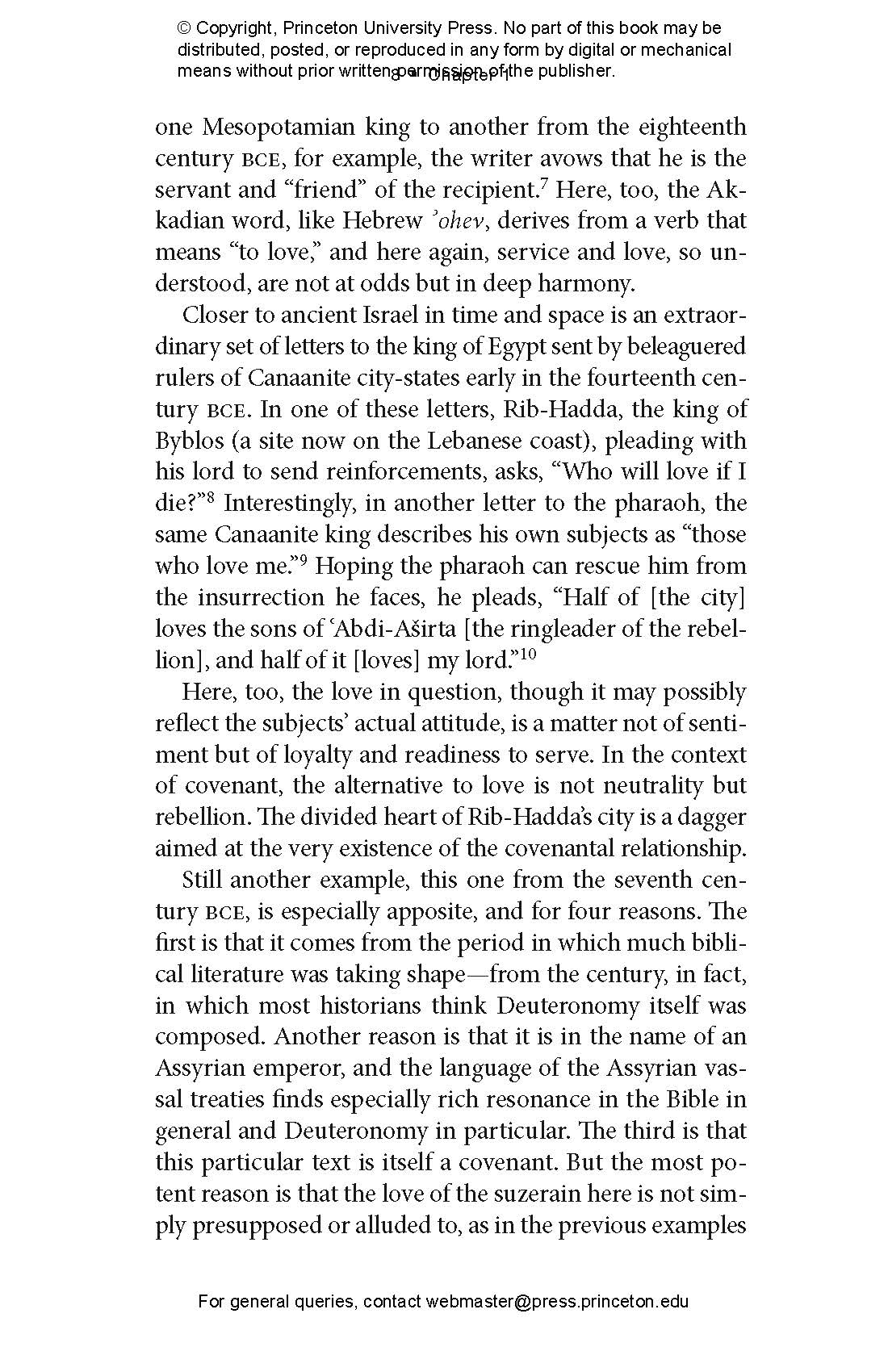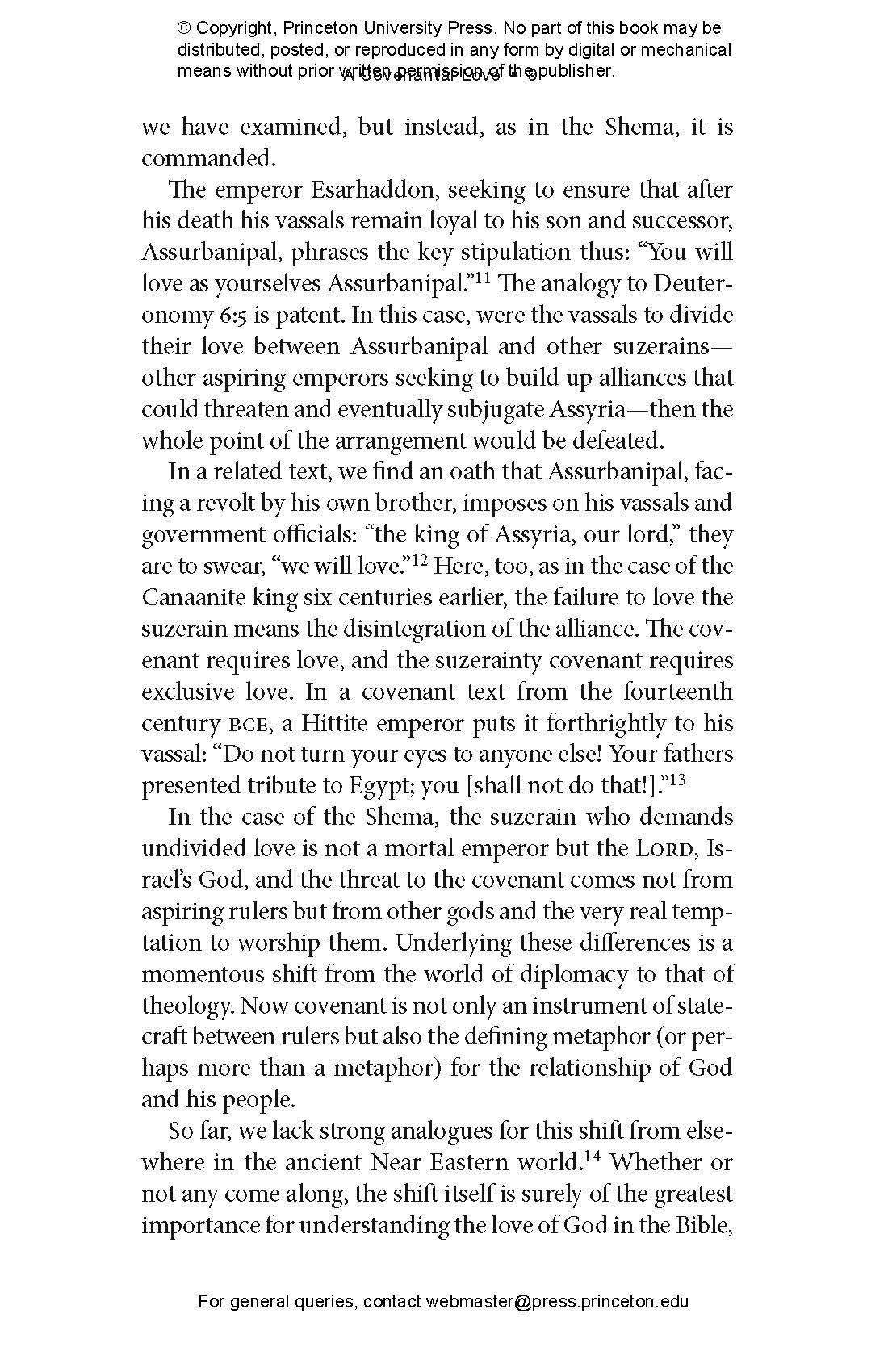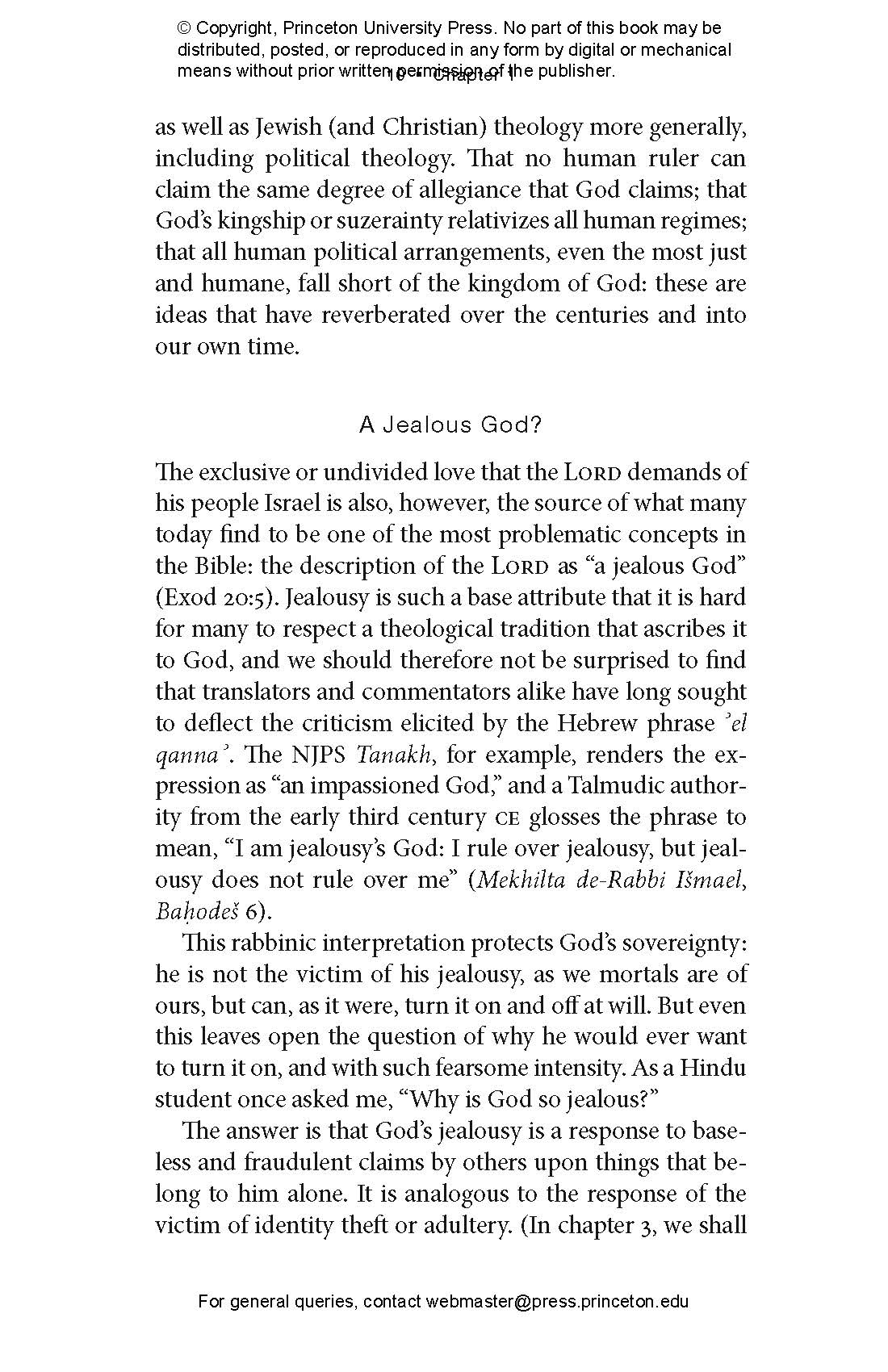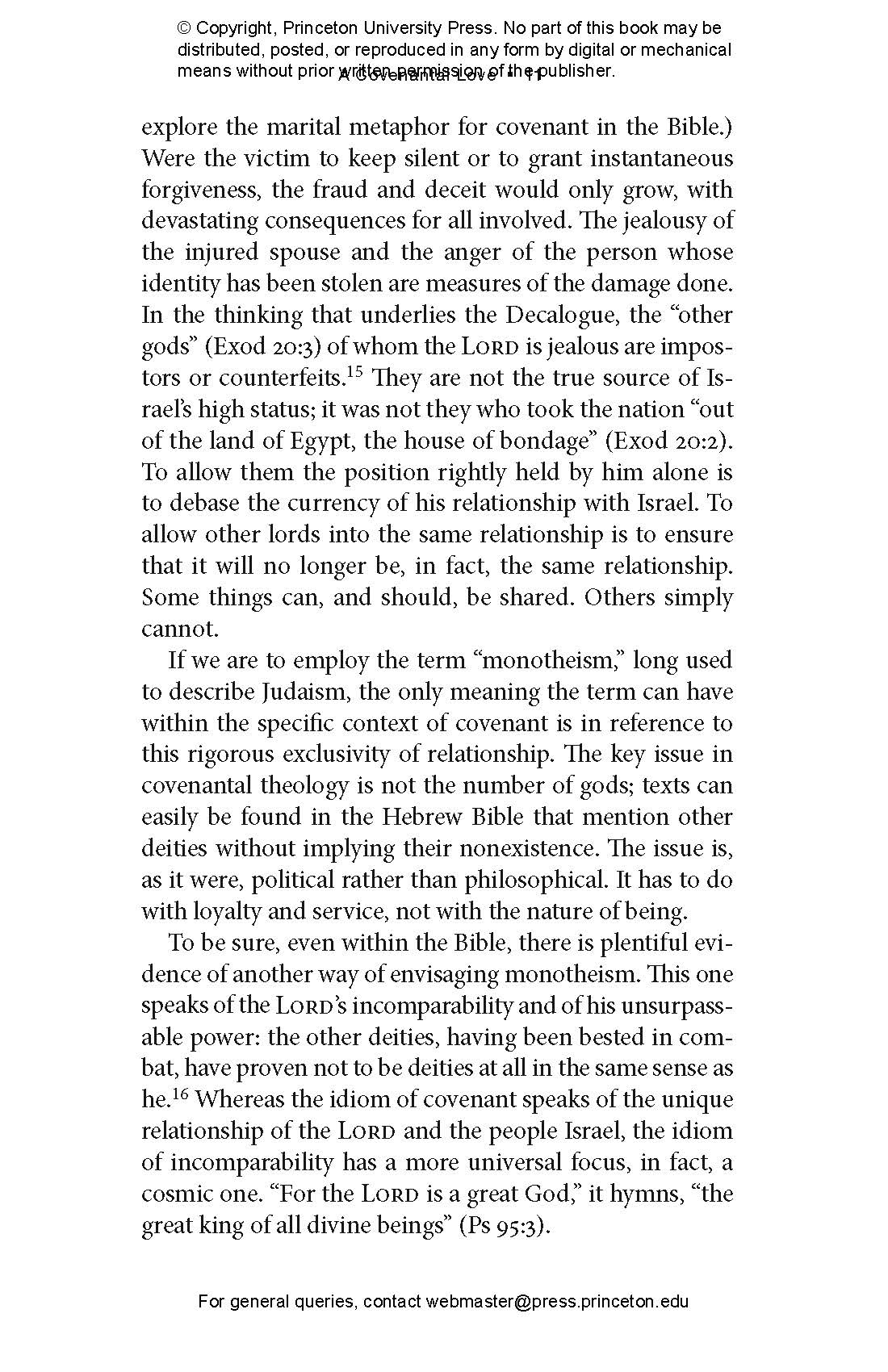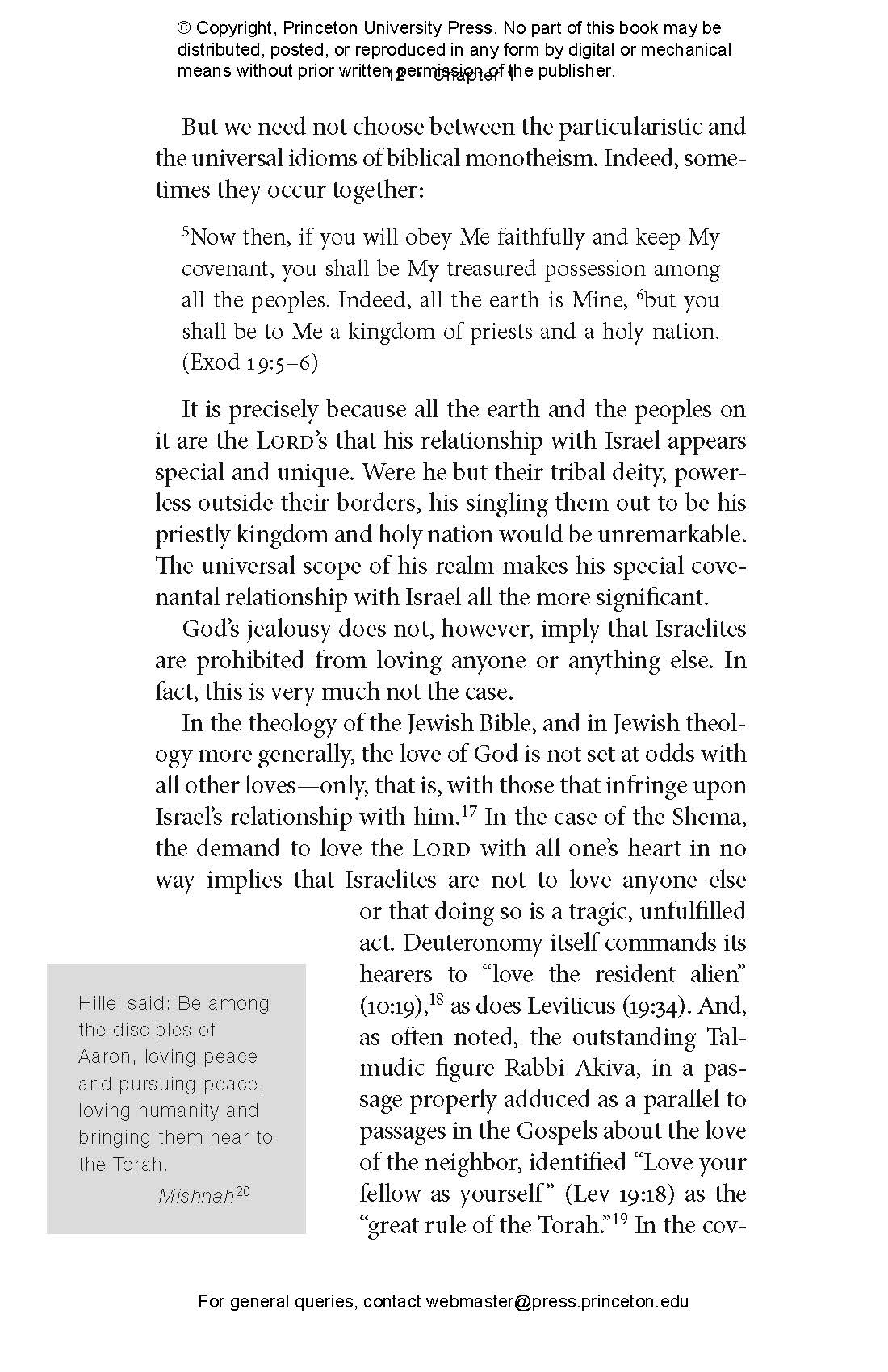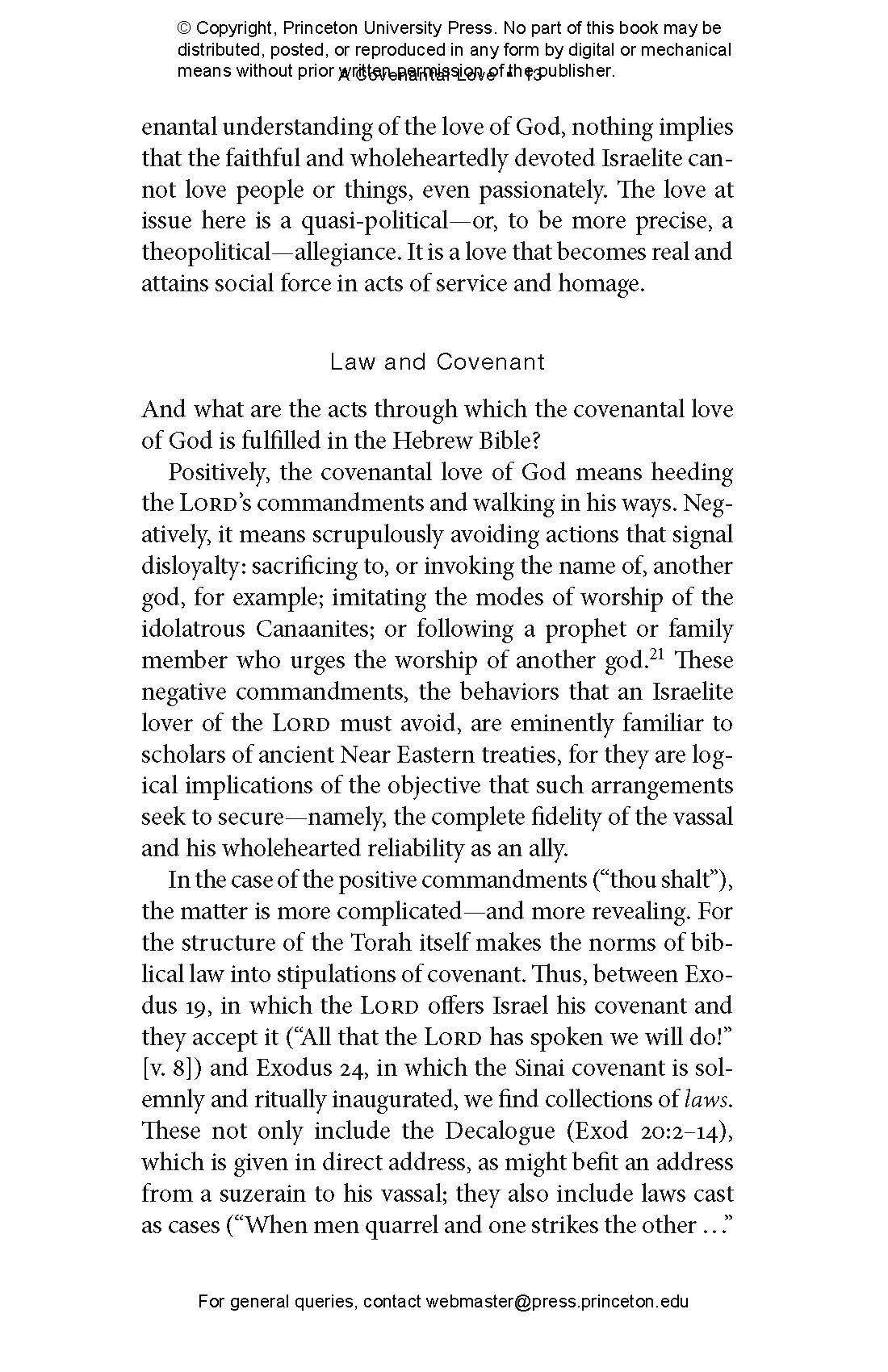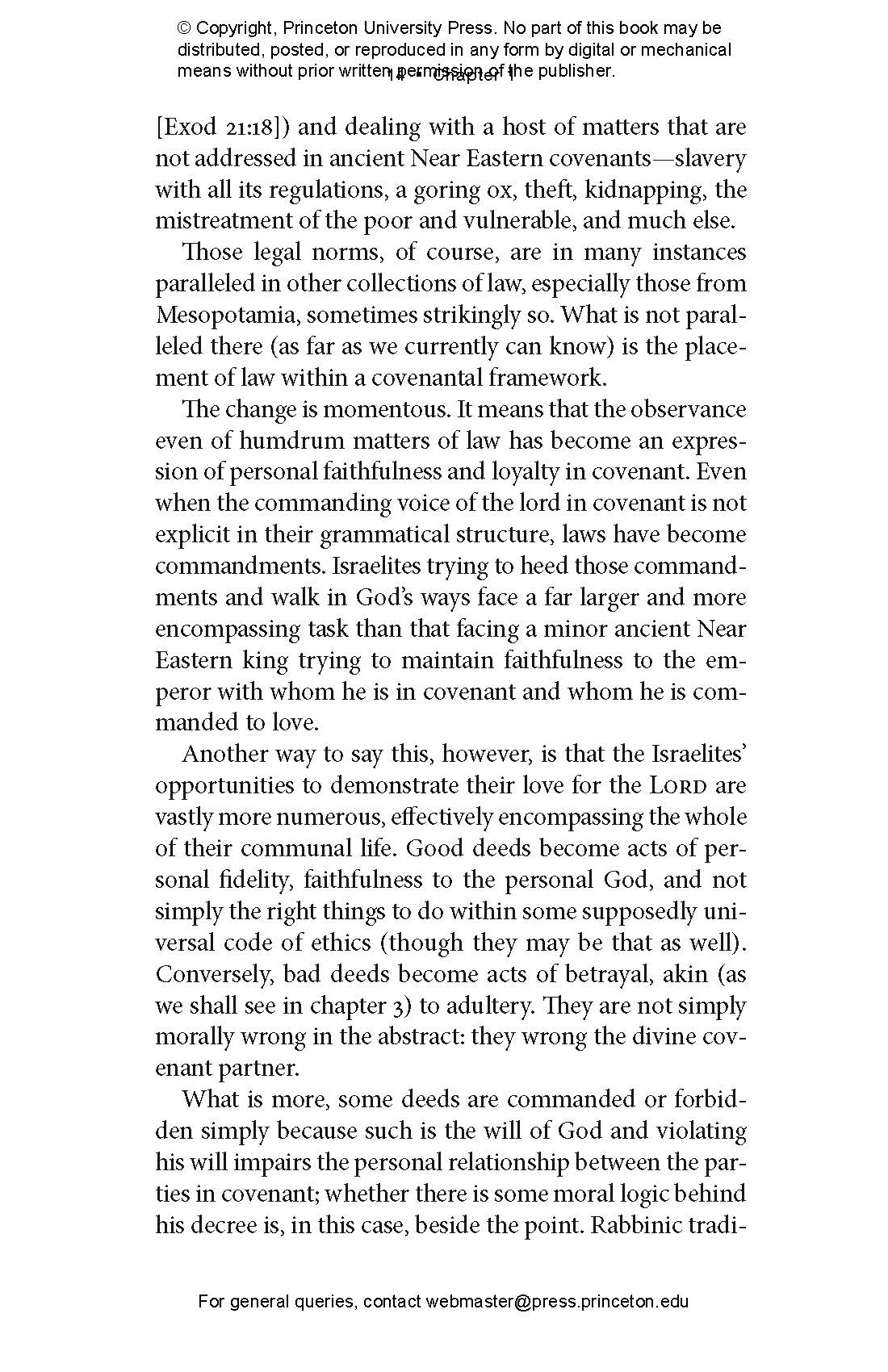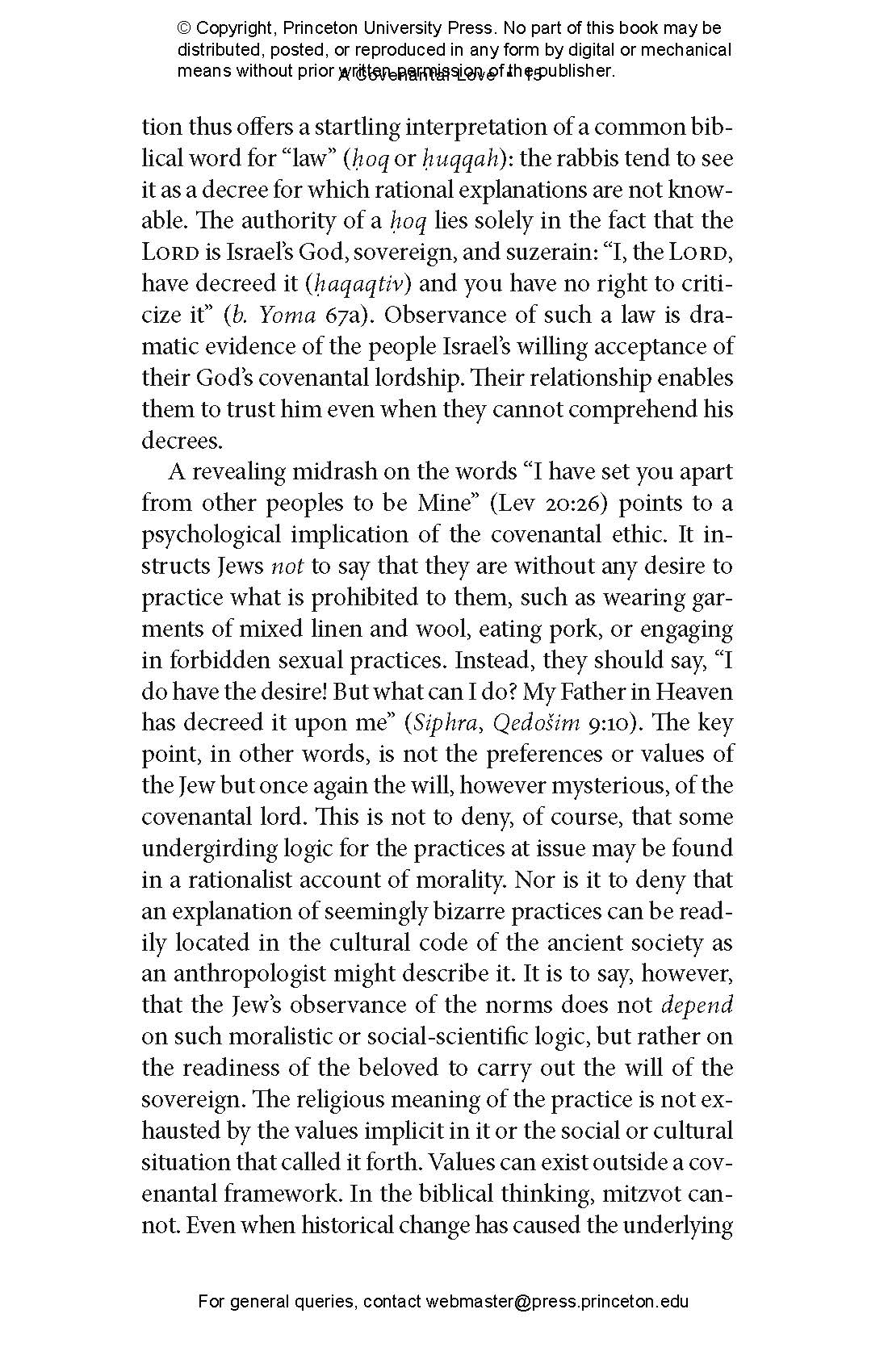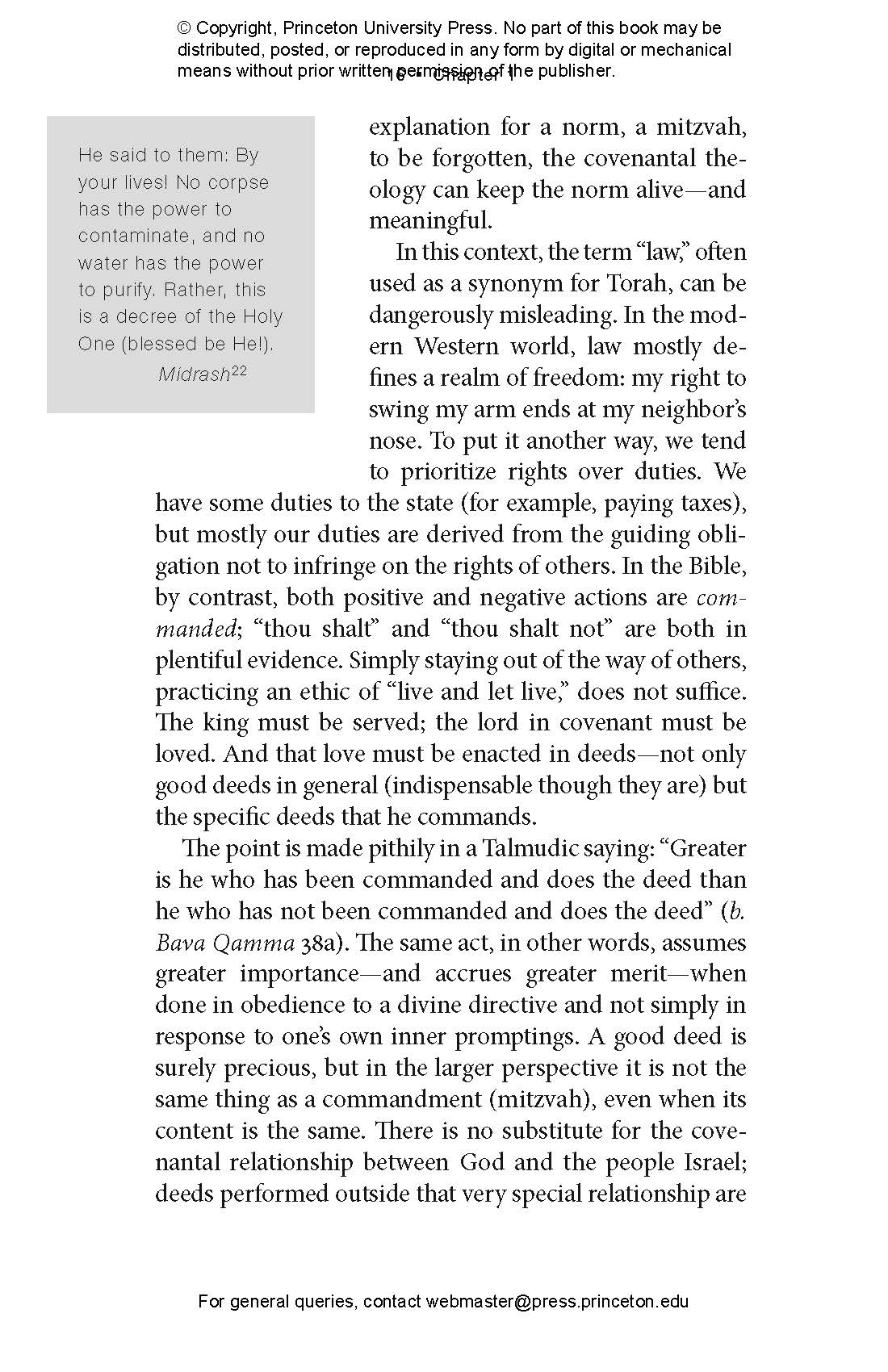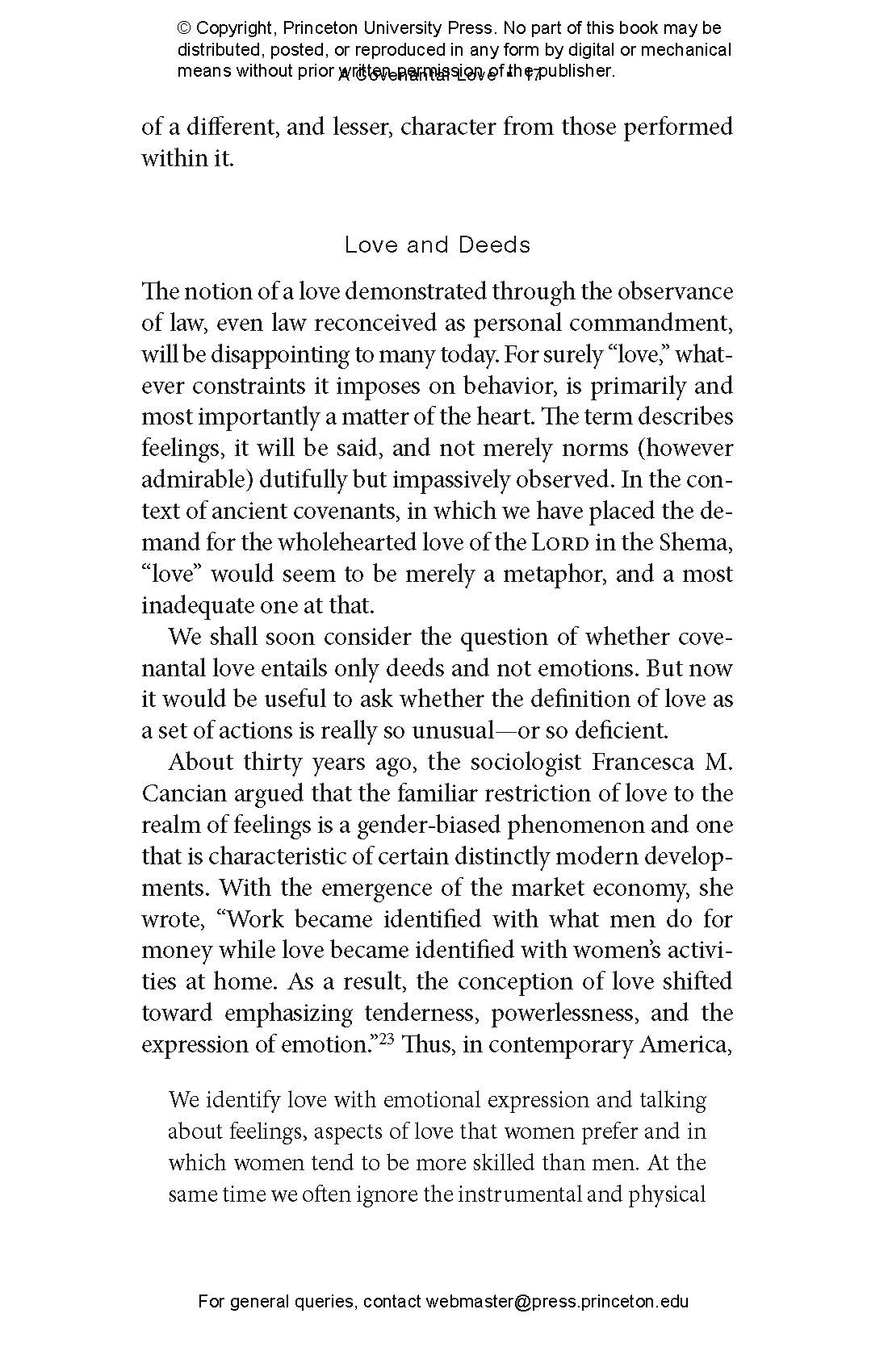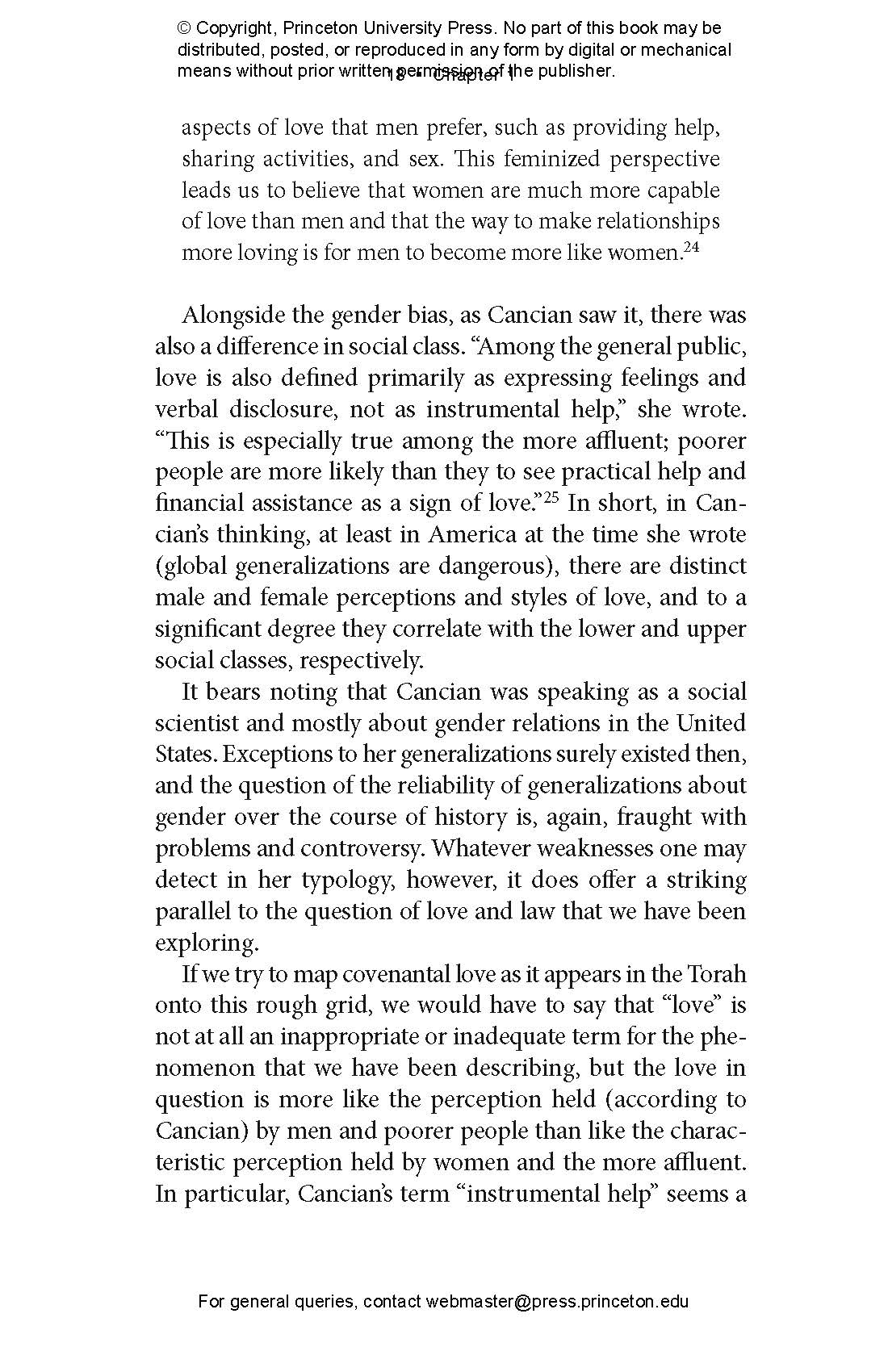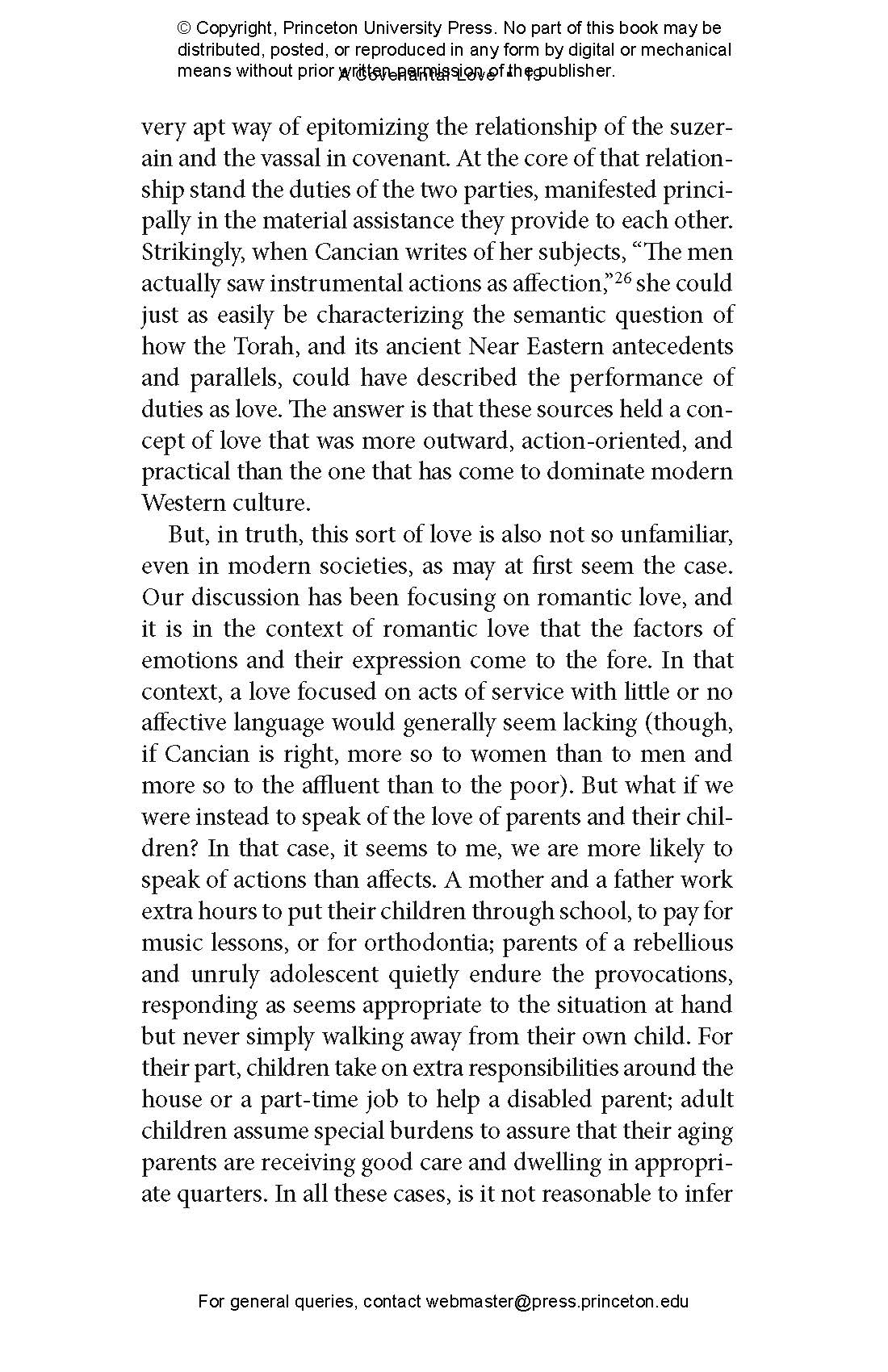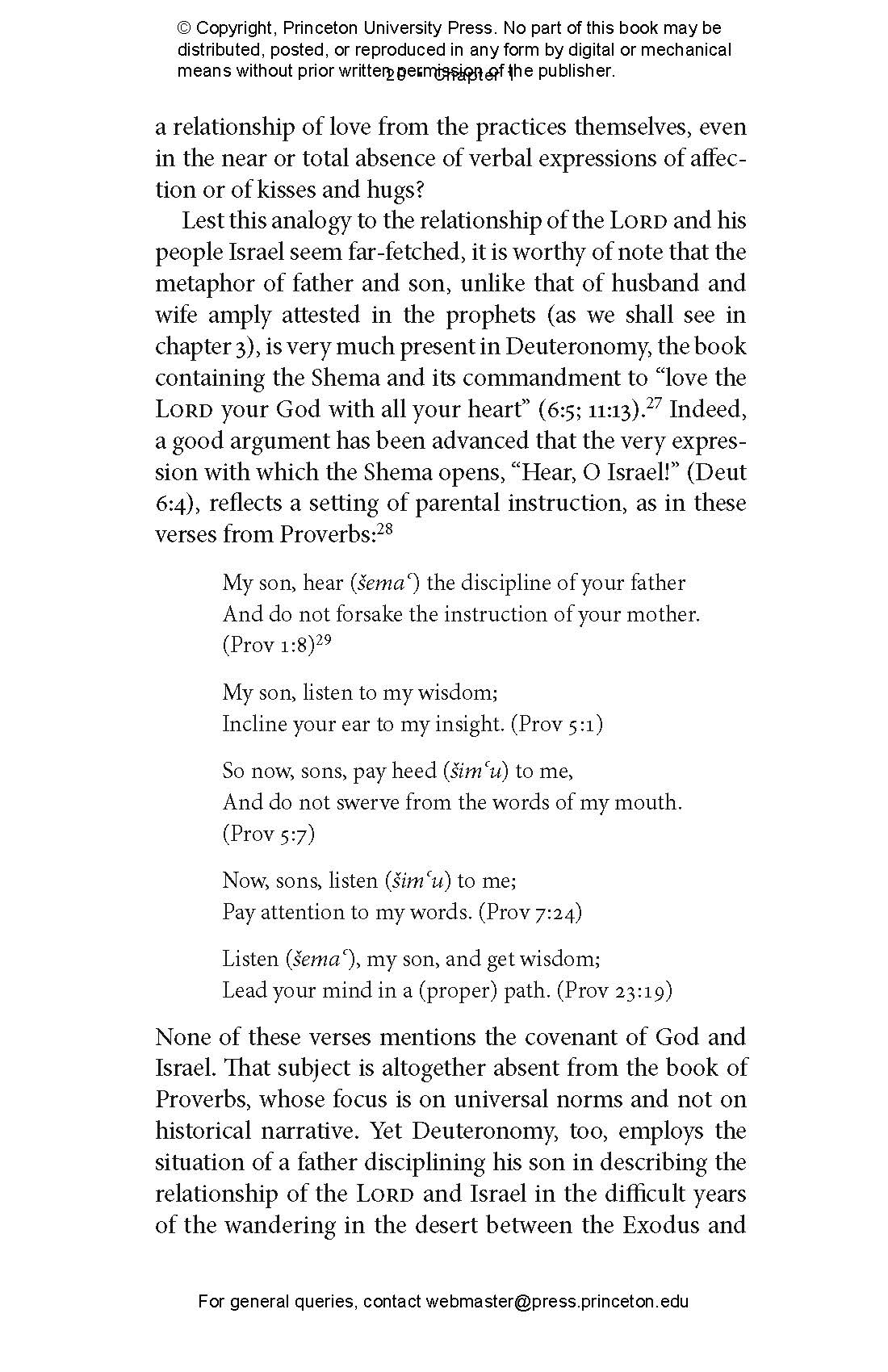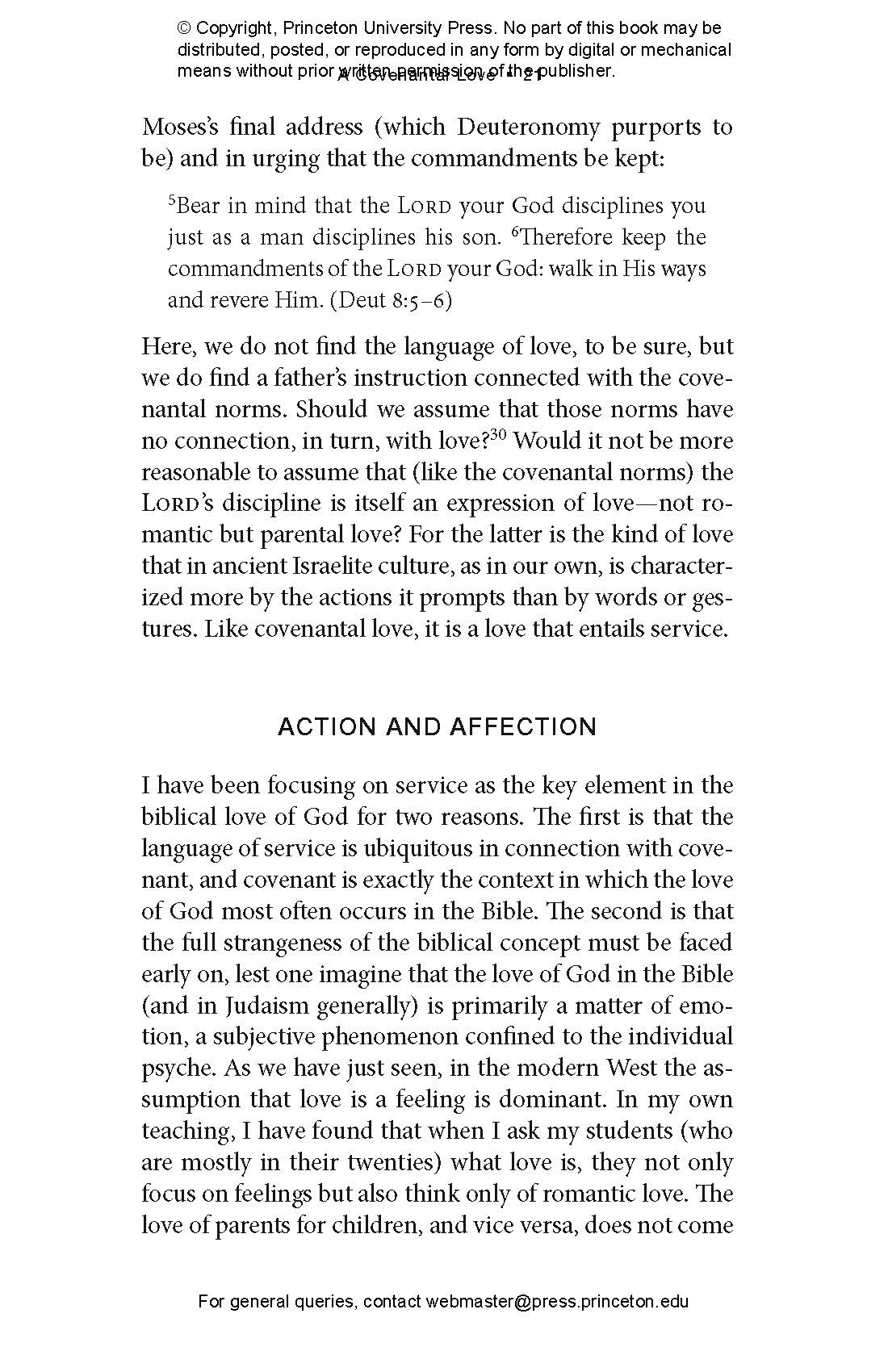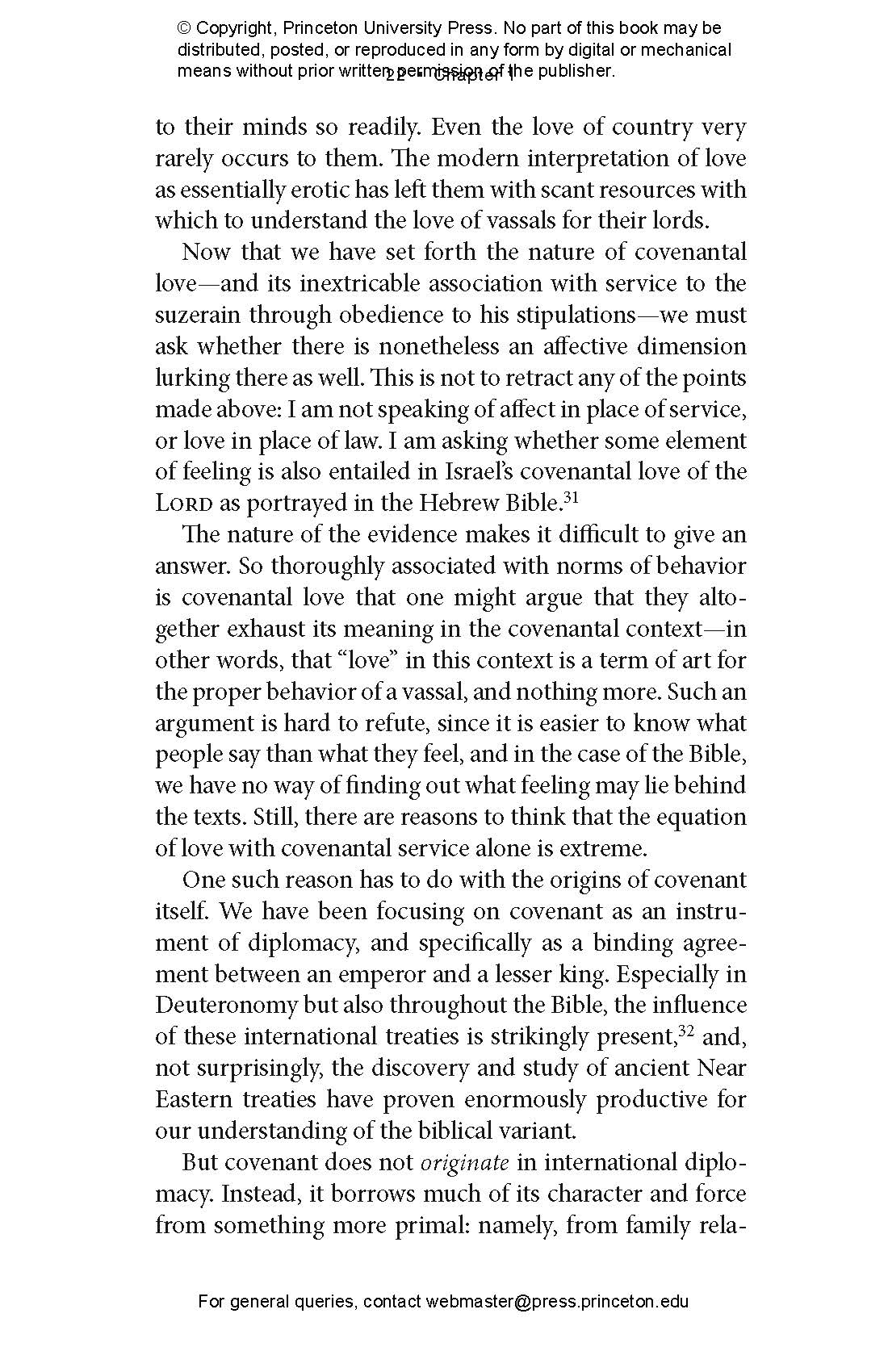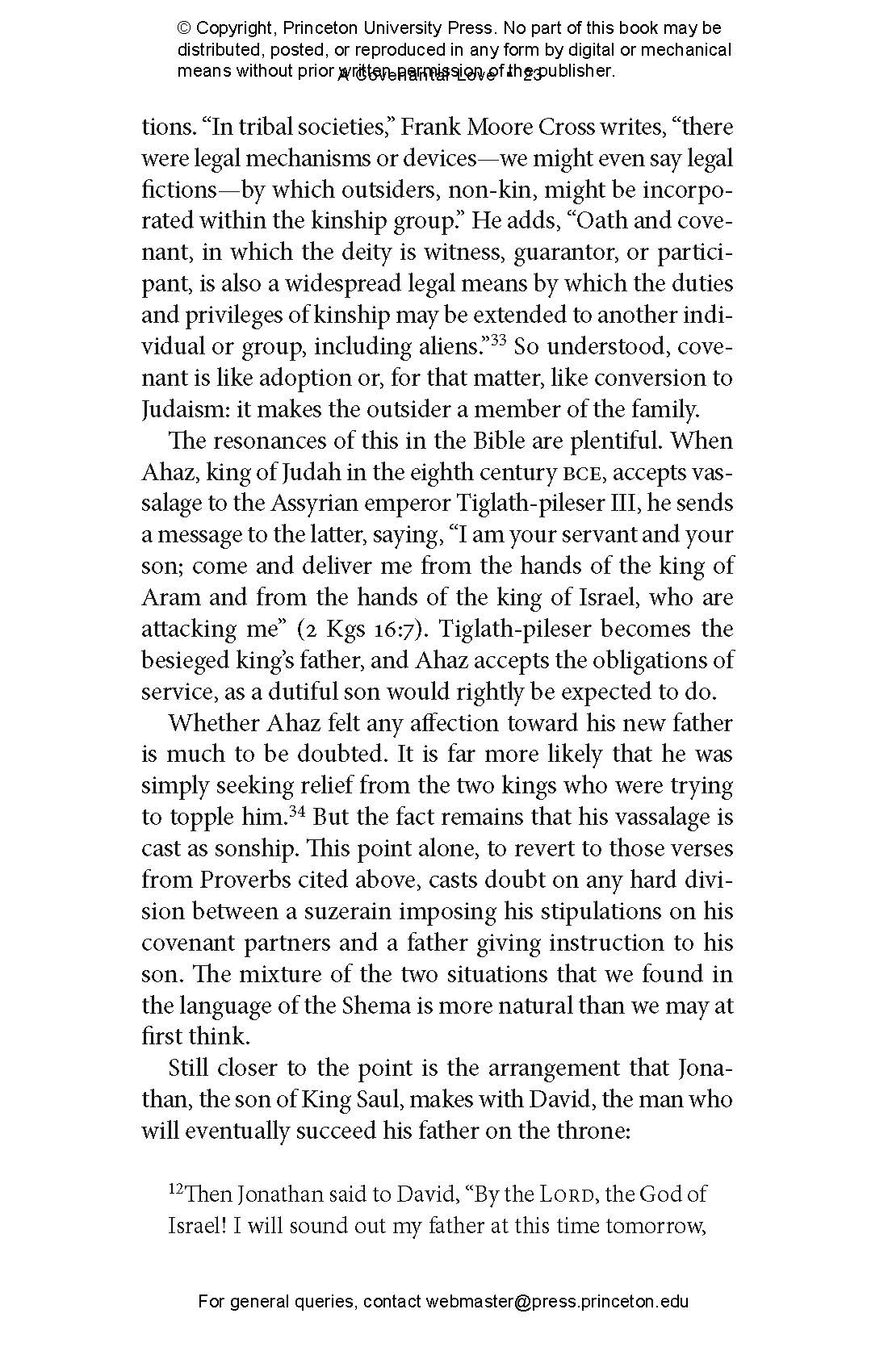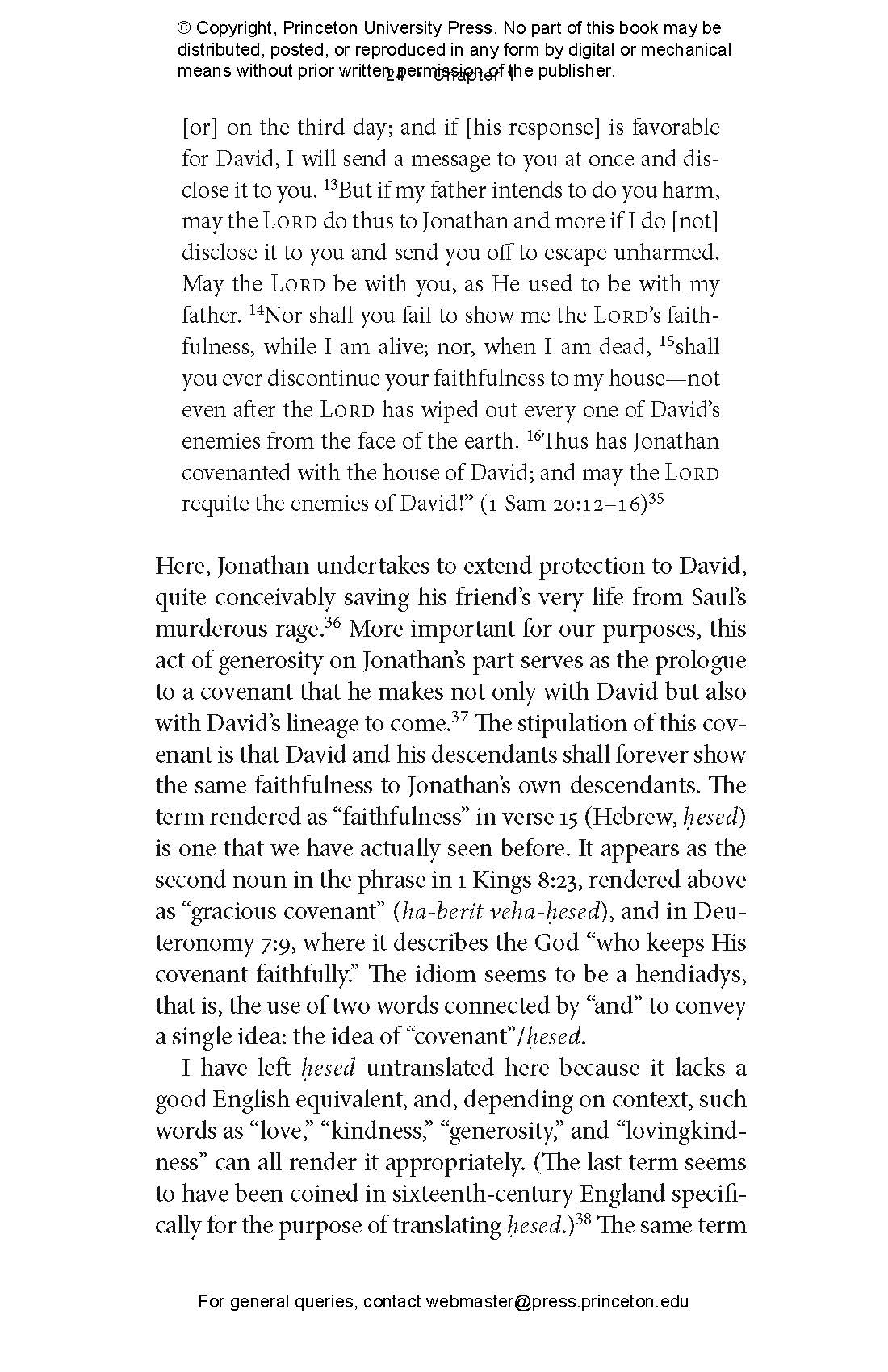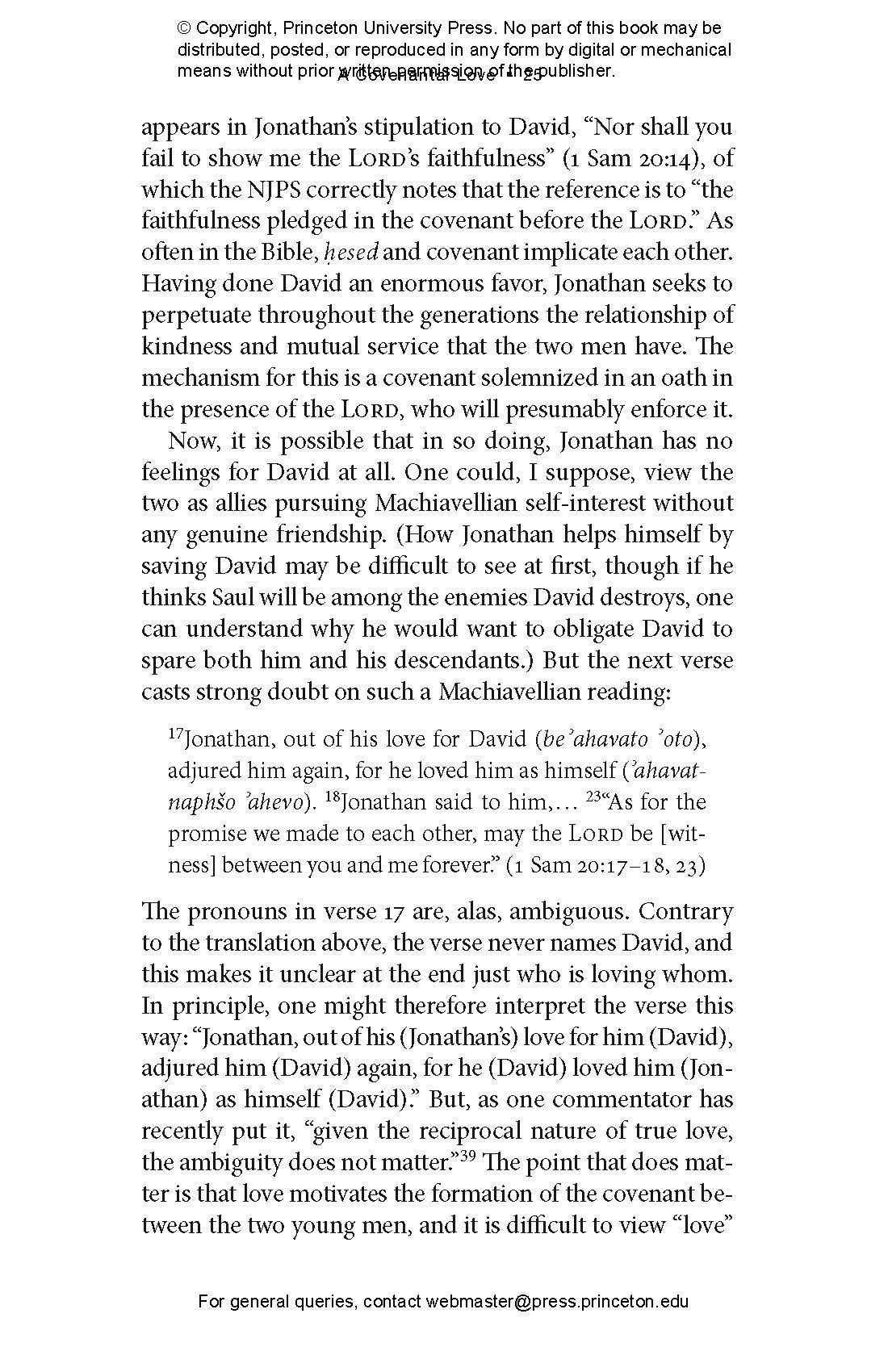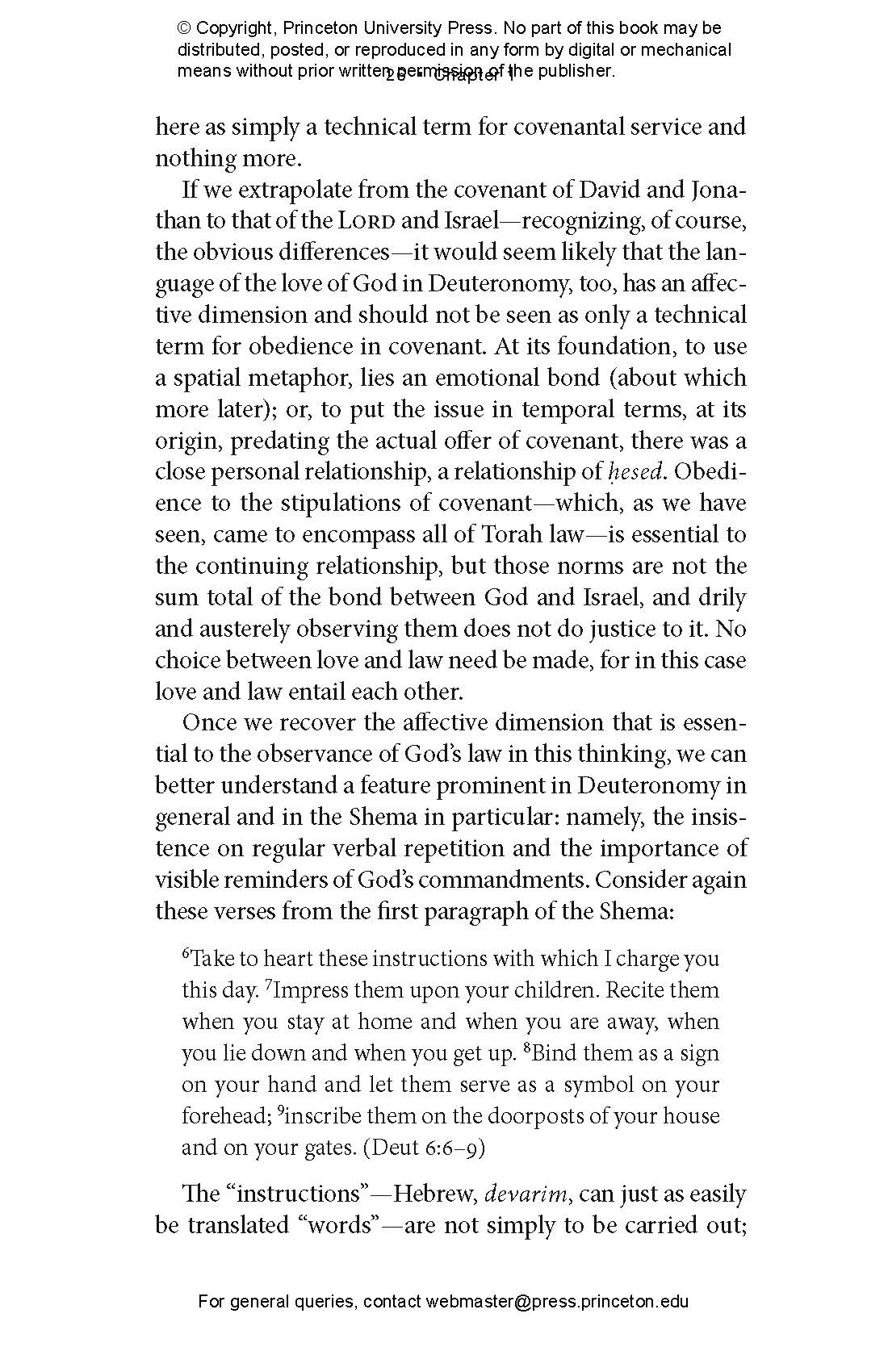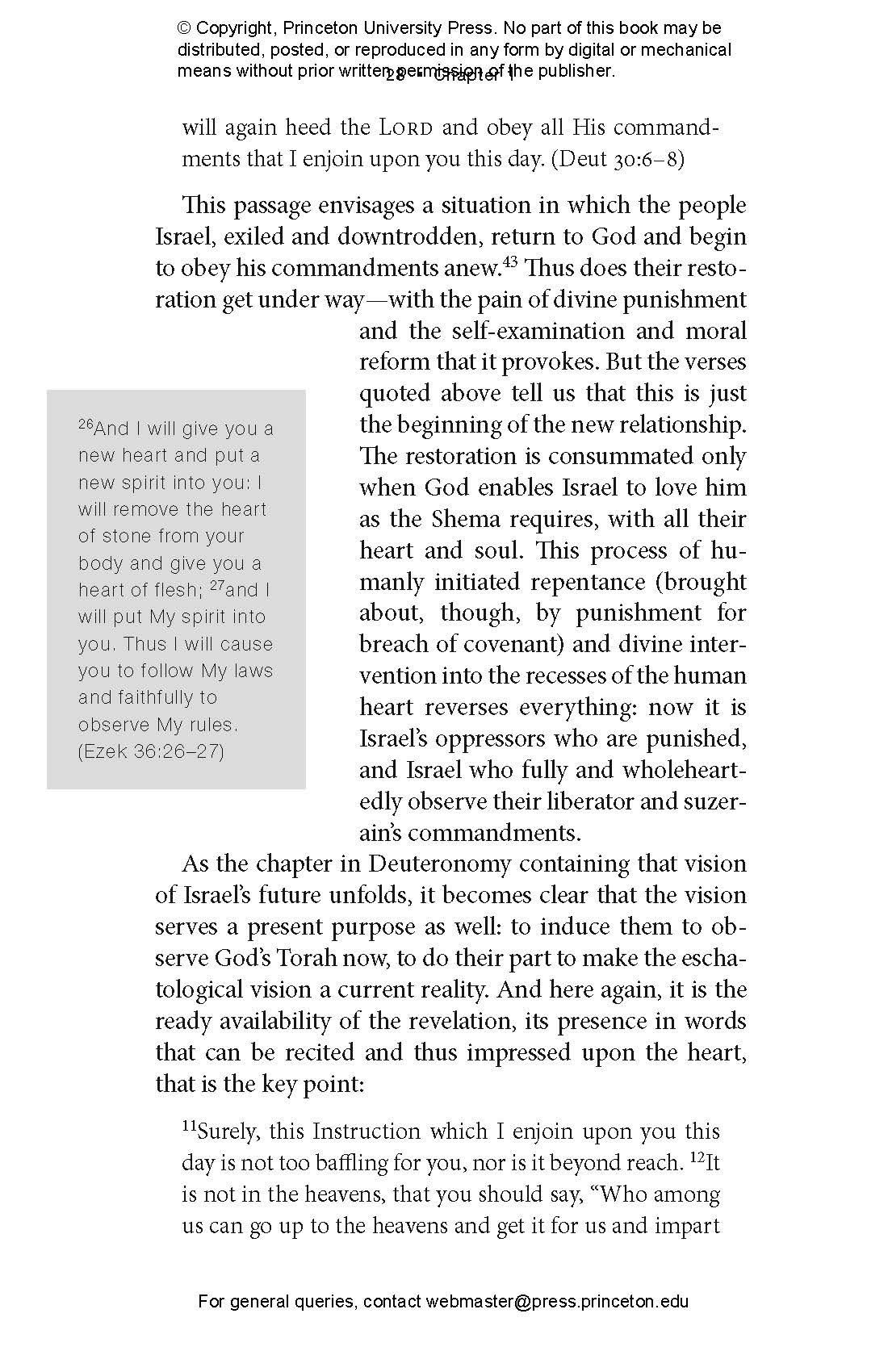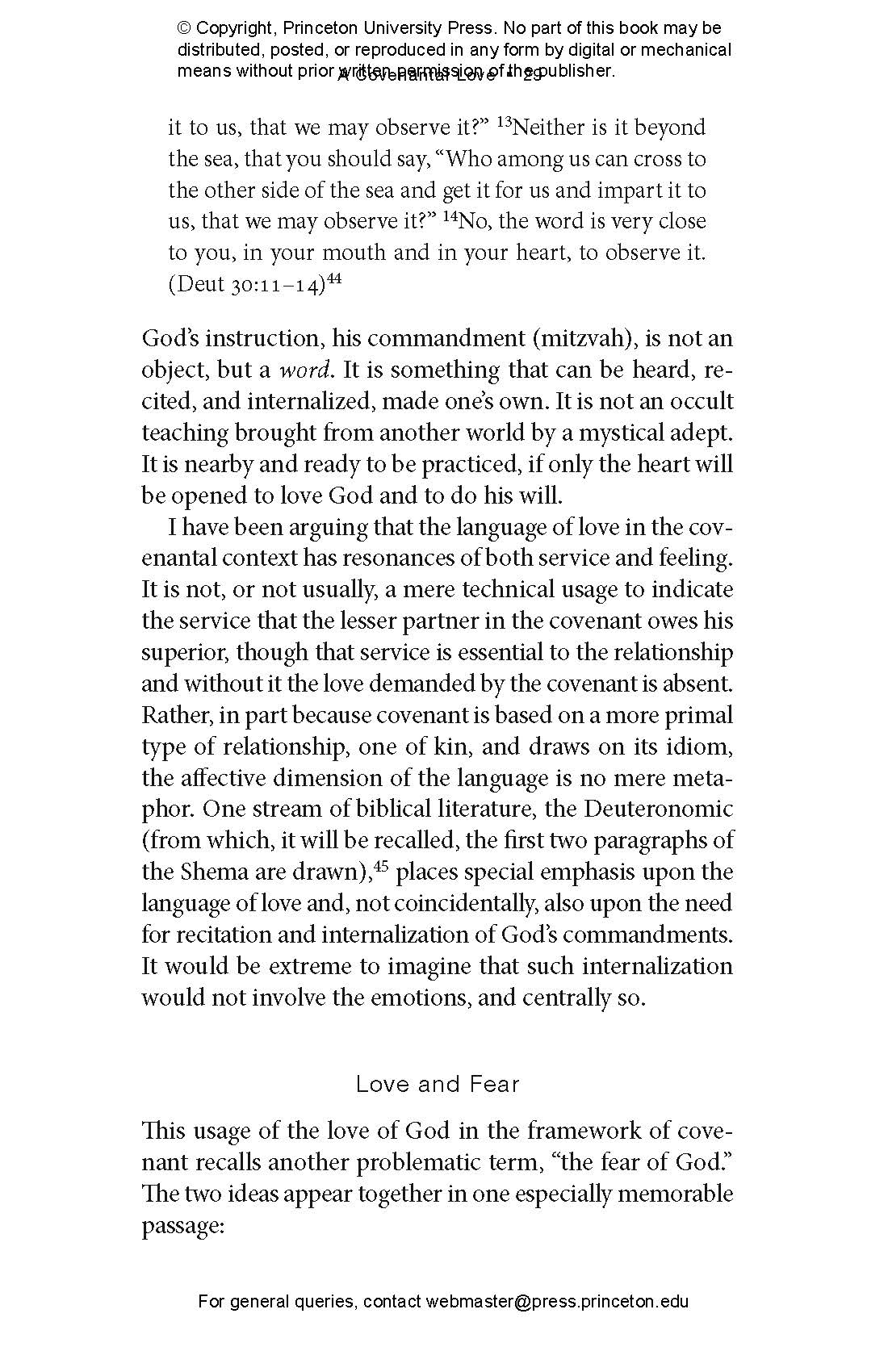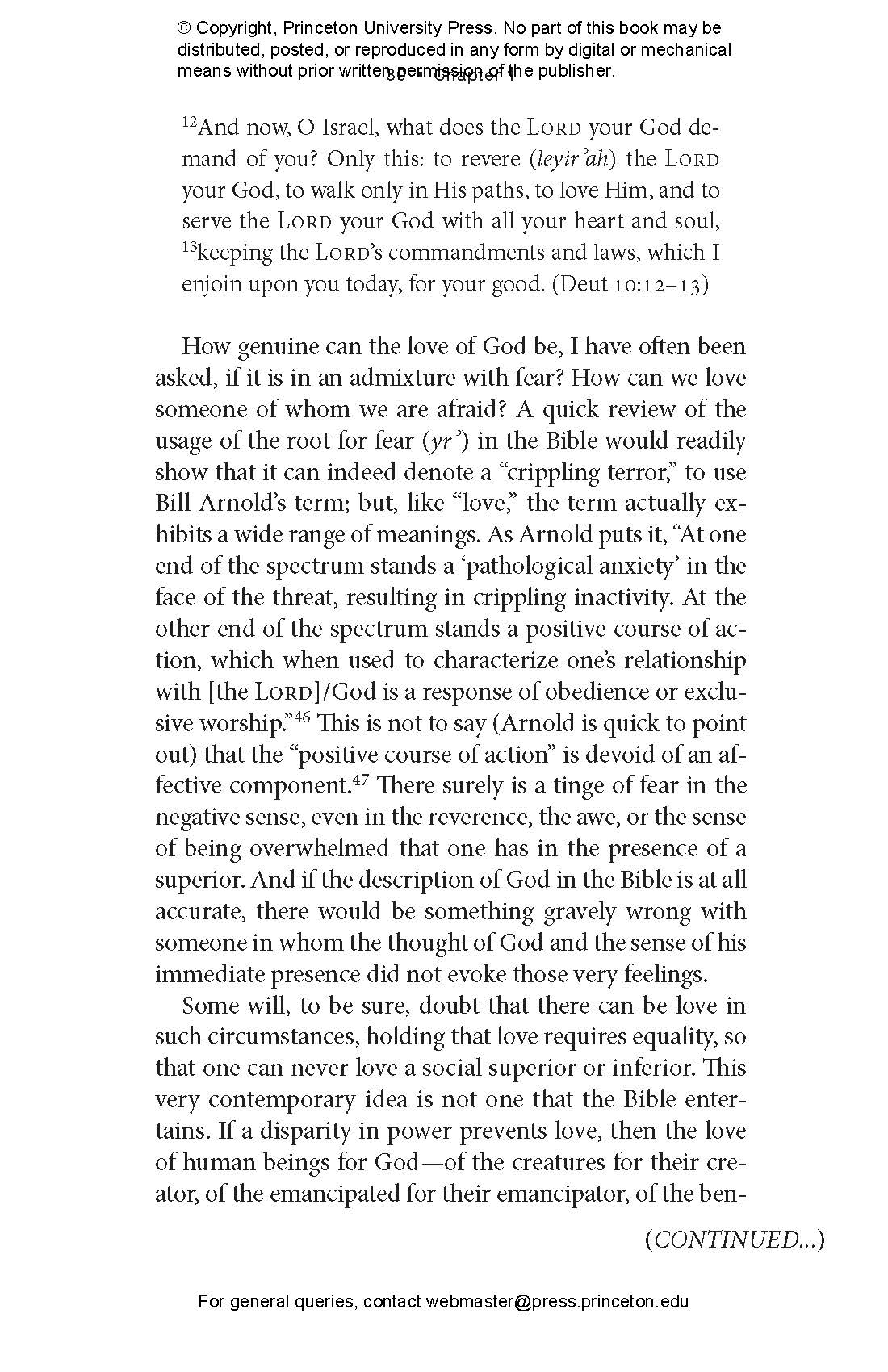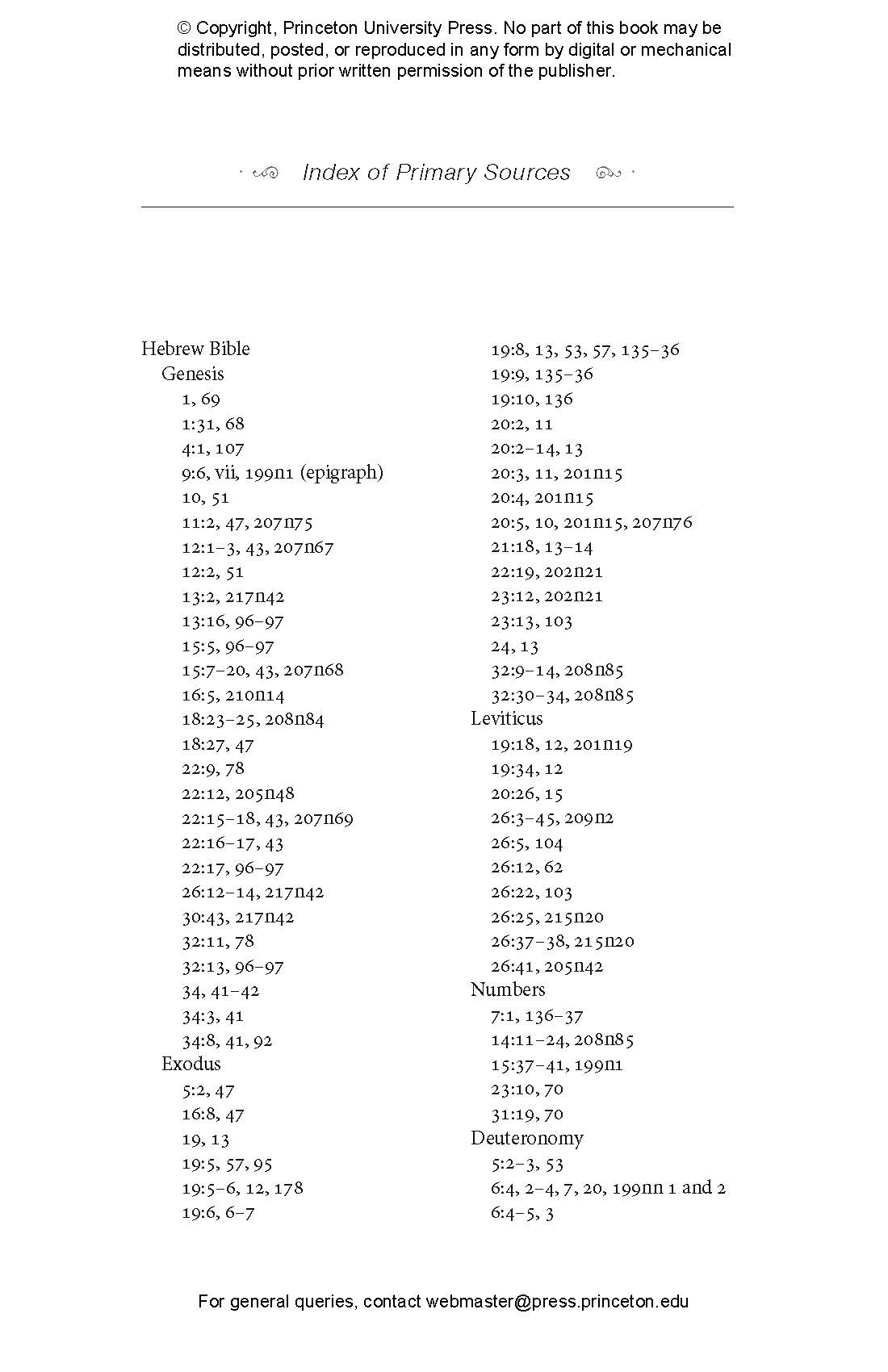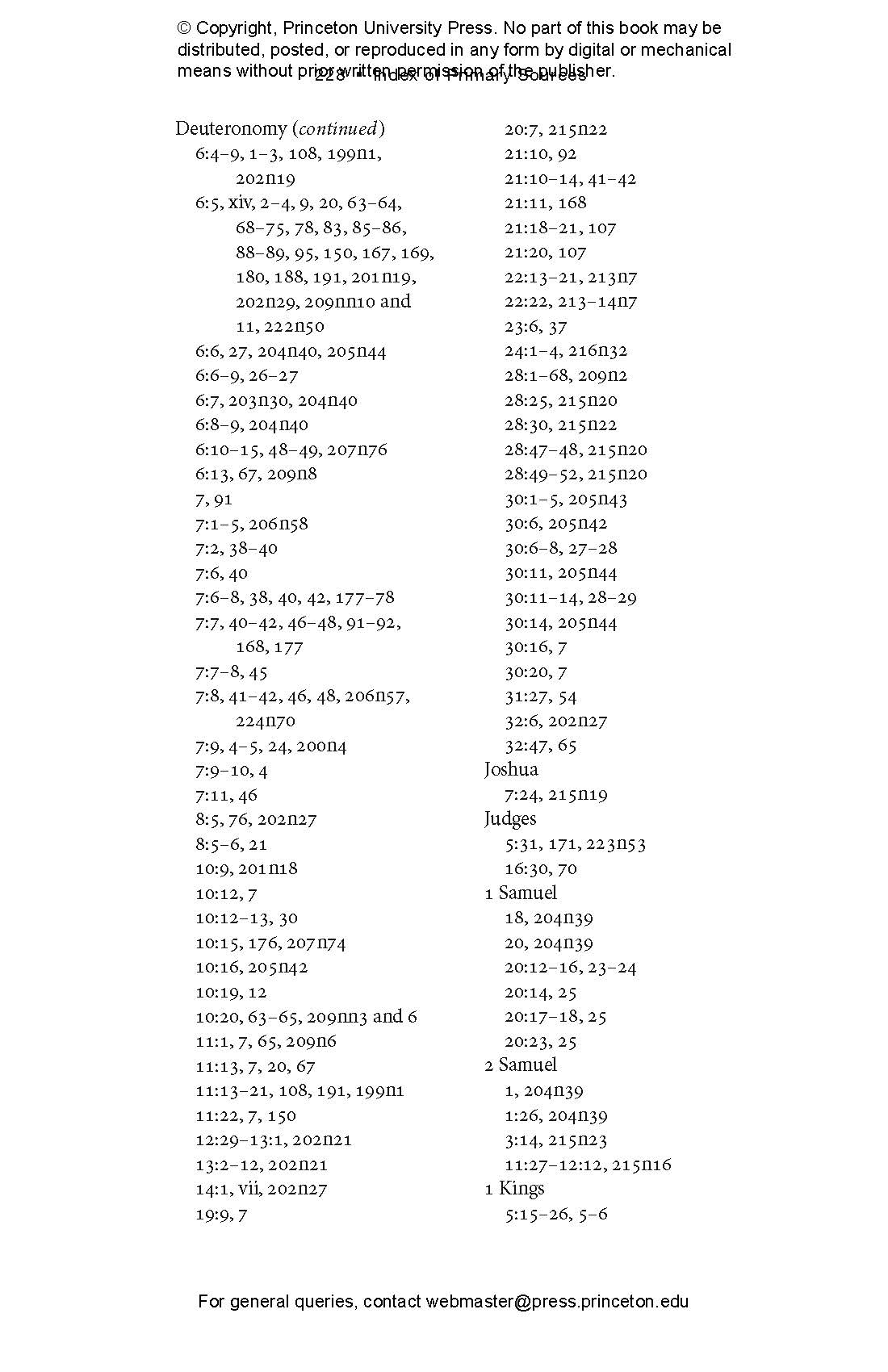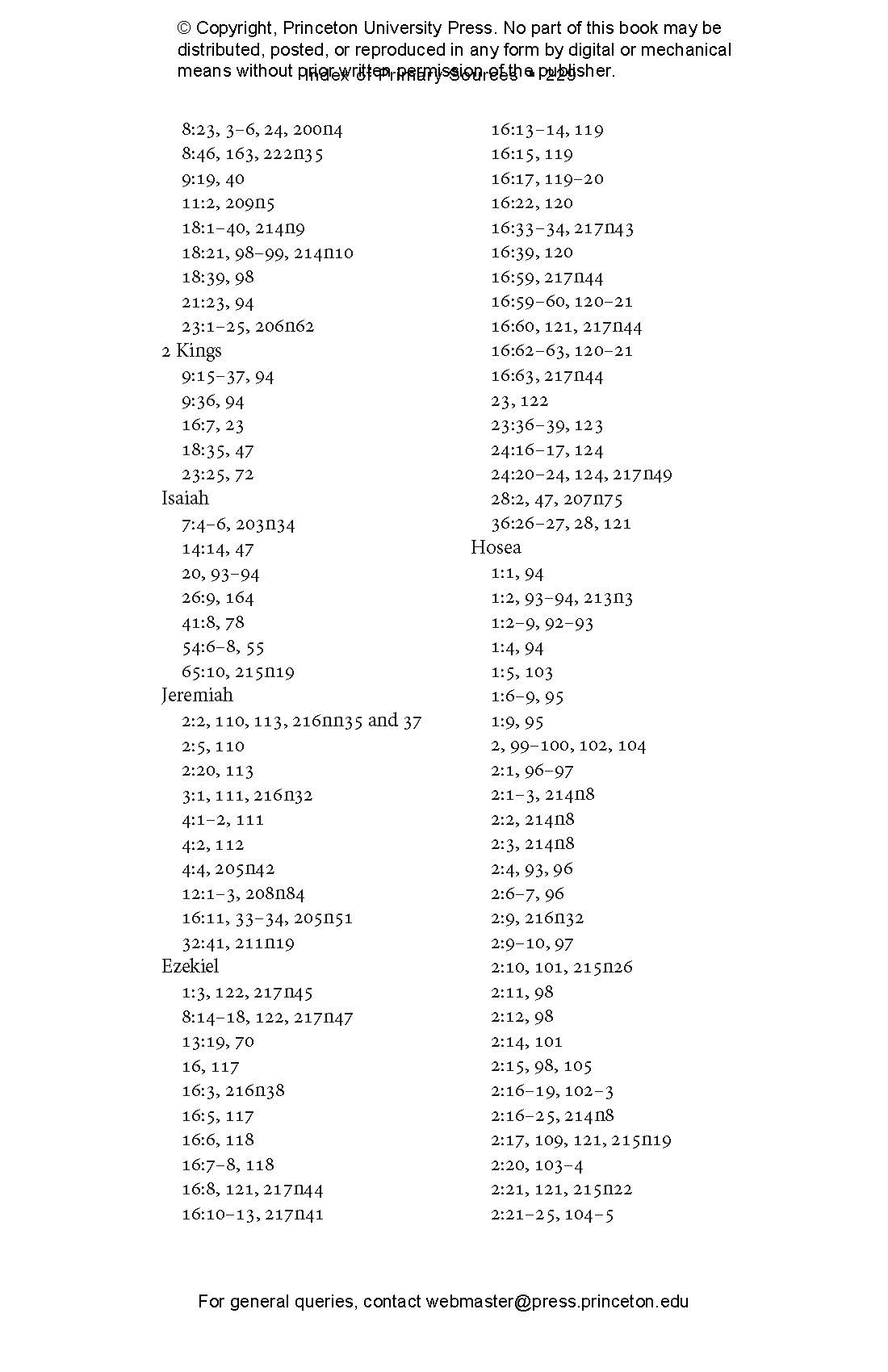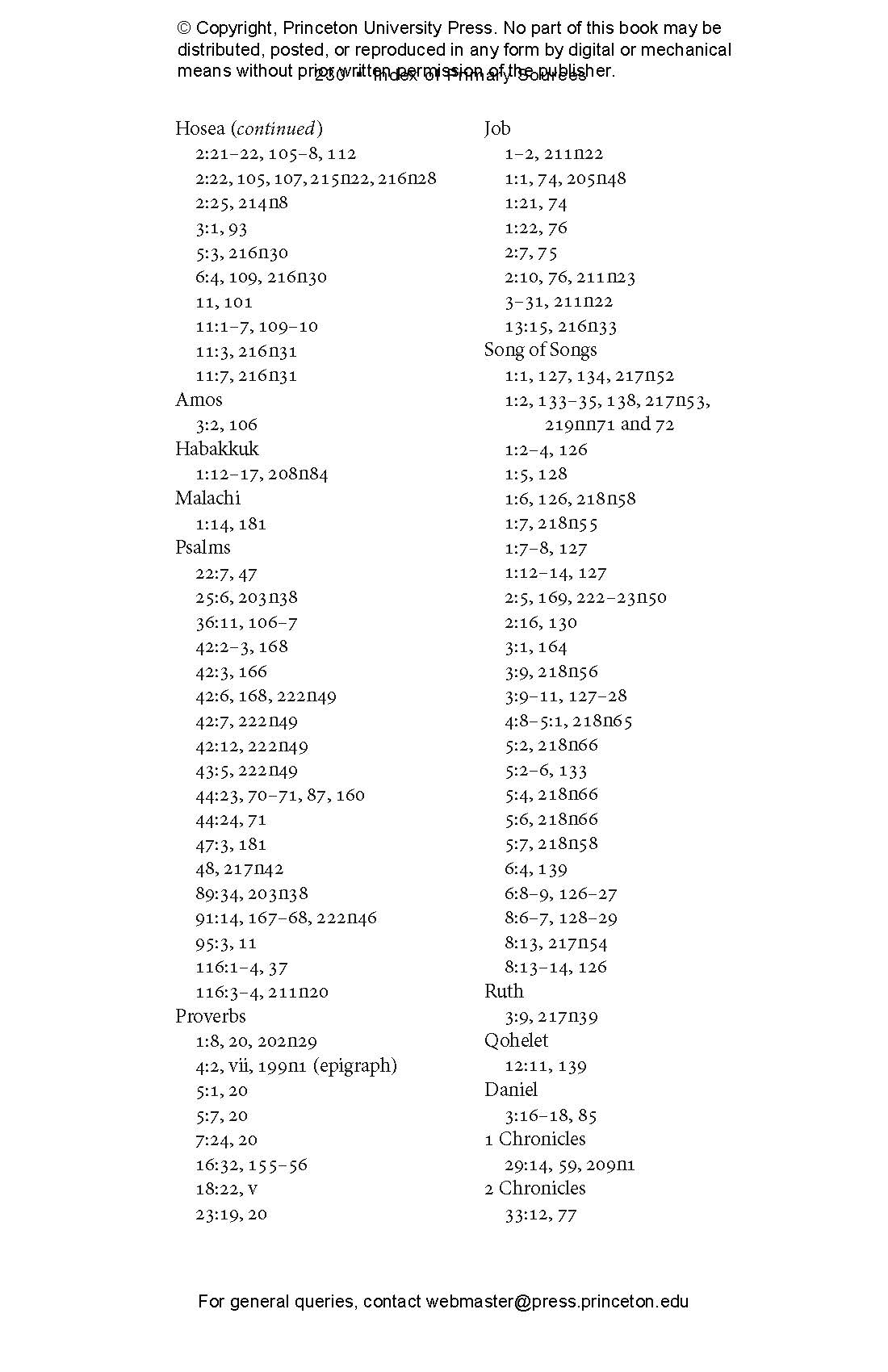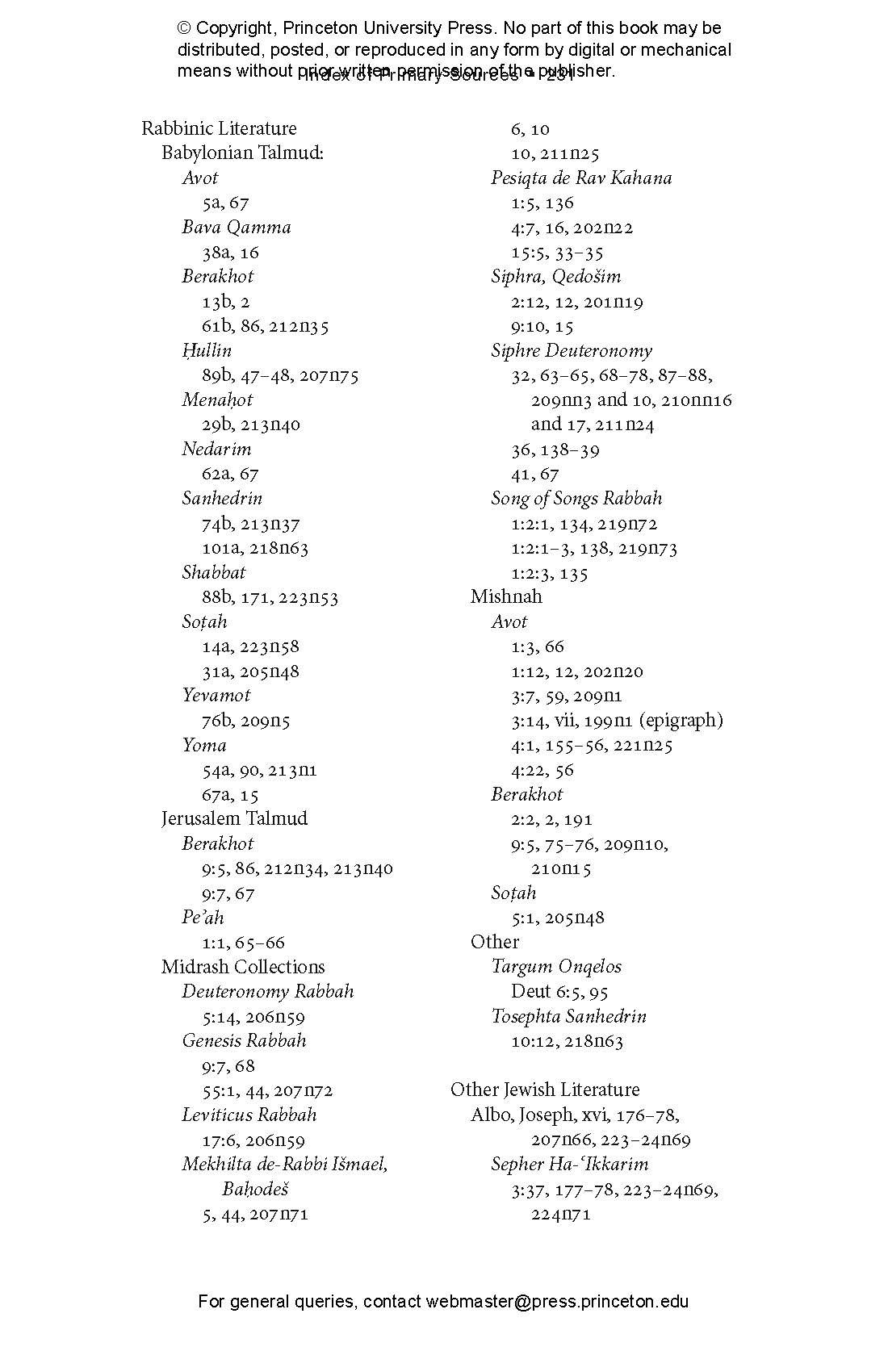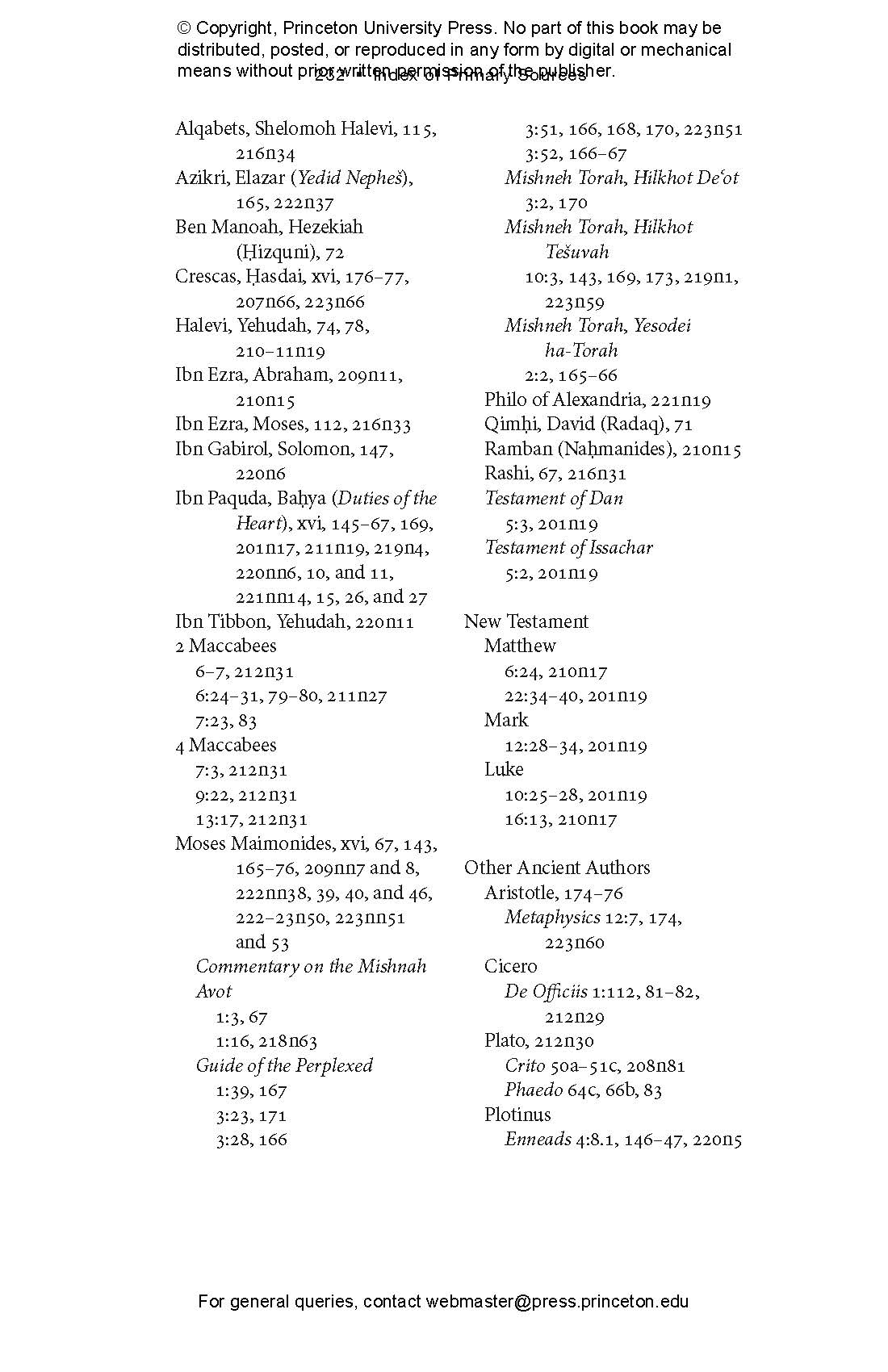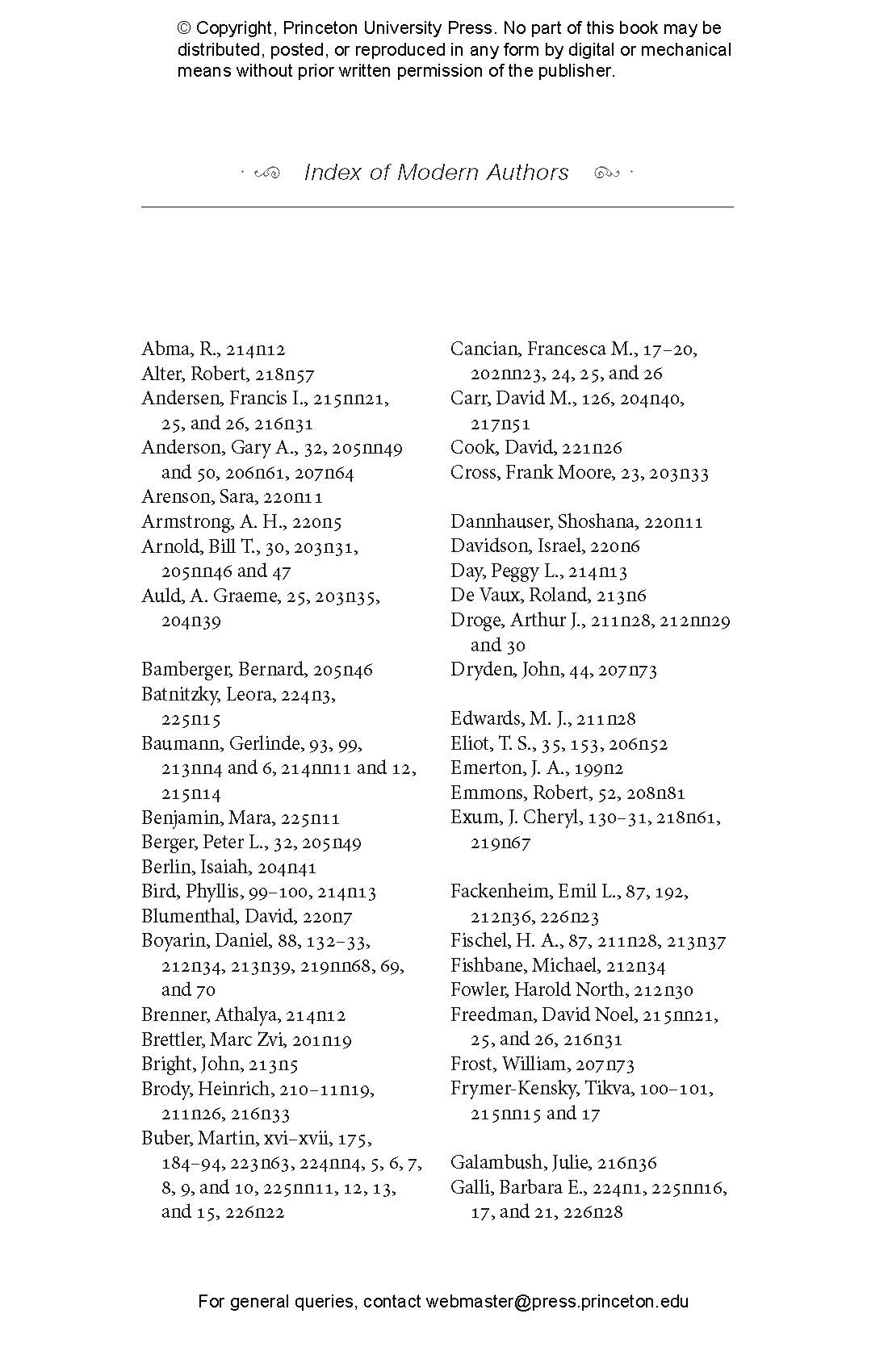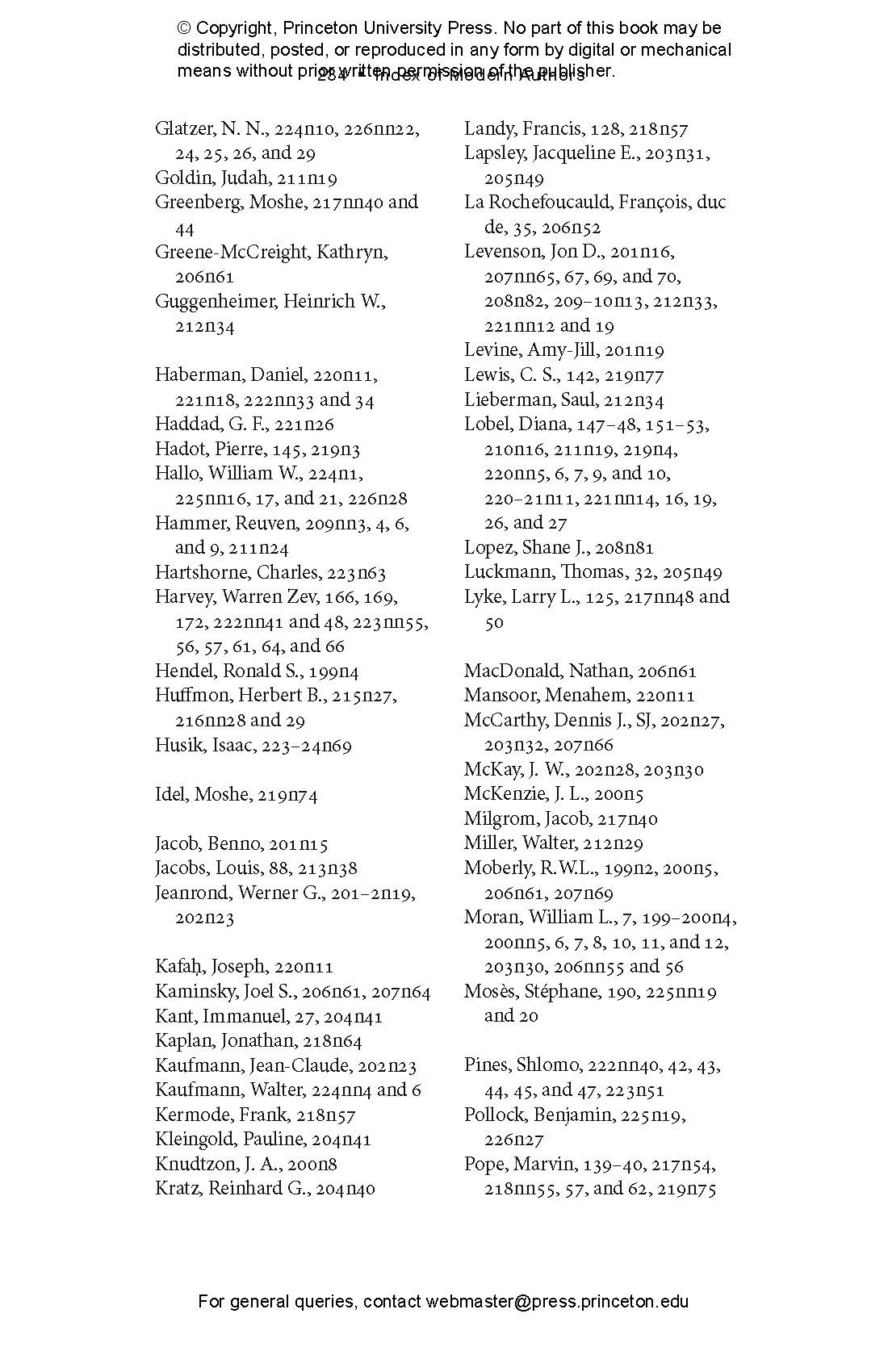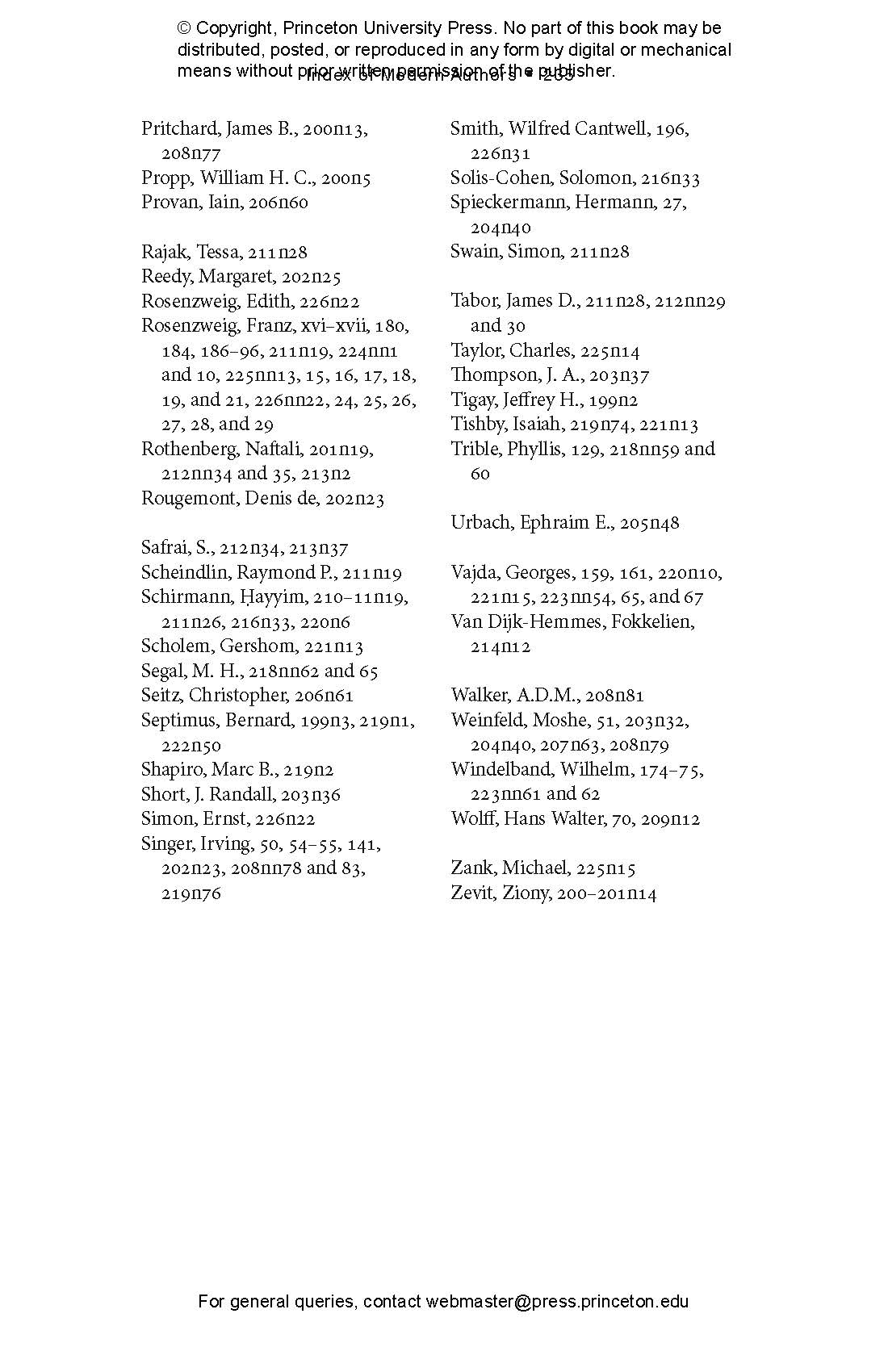The love of God is perhaps the most essential element in Judaism—but also one of the most confounding. In biblical and rabbinic literature, the obligation to love God appears as a formal commandment. Yet most people today think of love as a feeling. How can an emotion be commanded? How could one ever fulfill such a requirement? The Love of God places these scholarly and existential questions in a new light.
Jon Levenson traces the origins of the concept to the ancient institution of covenant, showing how covenantal love is a matter neither of sentiment nor of dry legalism. The love of God is instead a deeply personal two-way relationship that finds expression in God’s mysterious love for the people of Israel, who in turn observe God’s laws out of profound gratitude for his acts of deliverance. Levenson explores how this bond has survived episodes in which God’s love appears to be painfully absent—as in the brutal persecutions of Talmudic times—and describes the intensely erotic portrayals of the relationship by biblical prophets and rabbinic interpreters of the Song of Songs. He examines the love of God as a spiritual discipline in the Middle Ages as well as efforts by two influential modern Jewish thinkers—Martin Buber and Franz Rosenzweig—to recover this vital but endangered aspect of their tradition.
A breathtaking work of scholarship and spirituality alike that is certain to provoke debate, The Love of God develops fascinating insights into the foundations of religious life in the classical Jewish tradition.
"Our debt to Levenson is enormous. Here we receive the benefit of his attentive perception, which permits both Jewish and Christian readers of the Bible to see how much is shared, even given our formidable differences."—The Christian Century
"Jon Levenson's explication of these ideas is a miracle of organization, precision, and clarity. He writes accessibly and conversationally, belying his immense scholarship. The Love of God can be read for its original point of view, as a history of ideas, or as a way of finding new meaning in familiar ways of talking about God. It succeeds brilliantly on all counts."—Jewish Book Council
"An important, sober, and rewarding work that will find an audience among academic readers."—Library Journal
"A profound and erudite book that made me think about the love between God and the Jewish people in a whole new way. Prayers that will be familiar to most observant Jews—the Shma, Lekha Dodi, Yedid Nefesh, the phrase from Hosea that is said when wrapping tefillin on one's finger—take on deeper meaning with Levenson's guidance. . . . Exquisitely crafted. . . . If you are Jewish and/or interested in what the biblical commandment to love God means, go read it!"—Ira Stoll, former Washington correspondent and managing editor, The Forward
"[Levenson] skillfully weaves together a wealth of biblical passages that demonstrate that love of God entails a mutual relationship between God and Israel. . . . This book admirably demonstrates the impact of changing social realities, on Israel and on the Jewish people, amid which affection for God perseveres."—Choice
"Highly readable and engaging. Levenson's lifelong scholarship, like that of the best of popular theological writers, has refined his ability to write theologically rigorous books accessible to the lay reader."—Clint Schnekloth, Word & World
"The Love of God is compelling. L.'s presentation of the subject is a masterpiece of clarity and precision. His decision not to offer a comprehensive study of the subject makes the work highly readable to all audiences. It is valuable also because it can be approached as the history of ideas surrounding God’s love or as the story of God’s mysterious love for the people of Israel."—J. L. Manzo, Catholic Biblical Quarterly
"There is too much nuance in Levenson's meticulous scholarship for a humble review to do justice. . . . Reading his graceful prose, like performing the deeds commanded by Torah, also evokes and inspires the very love it has so carefully described."—Fran Leap, Horizons
"In a study that mirrors its subject matter in its passion, lyricism, and sensitivity, Levenson reintroduces the romance the love of God demands, which has heretofore been critically drained. . . . Levenson’s fine study is a noteworthy contribution to the understanding of a difficult and central theological concept. It should be a staple for any course dealing with Jewish theology or the love of God in religion. Like its topic, it is a lovely book."—James A. Diamond, Studies in Judaism, Humanities, and the Social Sciences
"Levenson’s volume is, by any standard, a masterful work that offers much to both scholarly and general audiences, bringing to life the full history of the concept, and, in turn, of Judaism."—Erik Dreff, Religious Studies Review
"Here is biblical and theological scholarship at its finest. With a rare combination of historical analysis, conceptual synthesis, and existential alertness, Levenson penetrates and illuminates the Bible and Jewish tradition. His writing is consistently fresh, lucid, and incisive. This is a book to savor."—R. W. L. Moberly, Durham University
"A richly rewarding study of one of the central values of Judaism. In this deep and splendid book, Jon Levenson shows yet again that he is one of the finest contemporary Jewish scholars."—Rabbi Lord Jonathan Sacks
"This book is nothing less than a reformulation of the whole idea of the love of God. Levenson offers a profound rereading of the evidence, one that stresses the continuity of Jewish thought from biblical times to the present. A strikingly original work, The Love of God is a landmark contribution to religious studies."—James L. Kugel, author of The Ladder of Jacob: Ancient Interpretations of the Biblical Story of Jacob and His Children
"As one expects from Levenson, the book is elegantly written and clearly argued. It will be of great interest to Jewish and Christian readers alike."—Richard J. Clifford, SJ, Boston College



